

Vaccinations for Thailand: Know What You Need, Why & When to Get Your Jabs
Thailand is a place of rich culture, delicious food, kind and welcoming people and unbelievably gorgeous vistas, which doesn’t sound like a threatening place by any means.
But coming from the West, it is also a place where you may be exposed to disease.
This is the unglamorous side of travel, but one that every traveller must not ignore.
There is a multitude of viruses and diseases that Westerns may have never heard of and are rarely vaccinated against.
While the risk of disease is real, recognize that alarmism is, too.
Many Western doctors are guilty of ‘tick box’ disease, an unfortunate circumstance where medical practitioners scare patients into getting every single vaccination in the book, which is not only unnecessary, but also extremely costly.
The majority of people travel to and from Thailand without a problem and the most you're likely to encounter is a cold, traveler's cough – as they call it – or food poisoning from a dodgy street food stall.
But as with most things in life, it's better to be safe than sorry, and that's why I've written this guide.
If you’re planning a trip to the Land of Smiles, I've compiled all the information you need on vaccination recommendations to ensure that your time in the Kingdom is without the threat of illness, plus some general health tips so you're fully clued up.
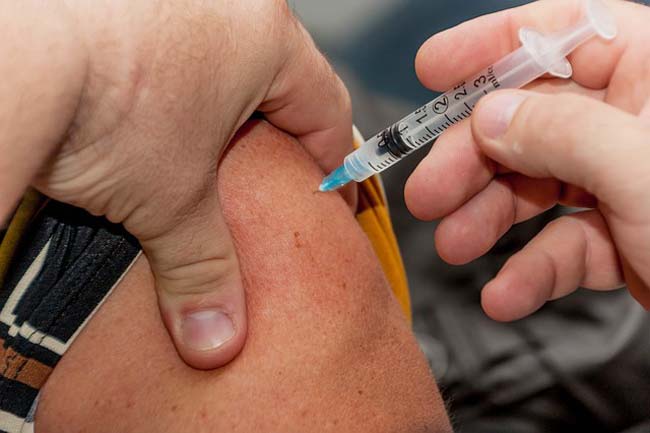
What The NHS & CDC Say
If you’re headed over from the UK or the US, here are the vaccinations that both the CDC (Centers for Disease Control and Prevention in the US) and the NHS recommend for Thailand:
- Measles-mumps-rubella
- Diphtheria-tetanus-pertussis
- Hepatitis A
- Hepatitis B
- Japanese encephalitis
- Yellow fever
*Note: MMR and Typhoid vaccines are typically scheduled early in childhood, so check your records with your doctor and make sure you are protected.
That’s a a big list. I know. Luckily, most travelers only need a handful of these vaccines based on how long they’re staying and where in Thailand they are visiting.
The National Health Service in the UK generally offers the following vaccinations for free:
- And occasionally Hepatitis B and typhoid
Those interested in other vaccinations will have to pay. In the US, most travel vaccinations represent an out of pocket cost- some of which may be covered by an insurance policy.

Necessary Vaccinations for Thailand
As previously mentioned, most travelers don’t receive all vaccinations for Thailand, as that would be quite an expense.
But evaluating what is necessary can be difficult, not to mention nerve wracking. So let's break down what you actually need:
Tetanus is an absolute must-have for all travelers. It is not spread through human contact, but through bacteria in soil, manure and even in dust. The bacteria can find its way into the body through small cuts or scrapes.
Cost (USD): The price of a tetanus vaccination in the US ranges from $10-$100, depending on your insurance and if you get tetanus as a combination vaccine.
Why you need it: Tetanus vaccines are a good idea. Tetanus is fairly easy to contract because of its ease of transmission. It is almost impossible to monitor all of the environmental factors associated with travel, so the tetanus vaccine will both protect you and put your mind at ease.
Actual risk: Those who contract the disease are prone to lockjaw or a tightening in the muscles in the jaw.
In addition, those infected may have seizures, fever, increased heart rate, muscle pain and headache. Long term issues include fractures, blockage of lungs by a blood clot, pneumonia and prolonged, serious breathing issues.
– When to get vaccinated: Get vaccinated anytime before travel. Tetanus is a good ‘all around’ vaccine that will help protect in a variety of circumstances.
– Doses required: 1
2. Hepatitis A
Another important vaccination is to protect against hepatitis A, which is a debilitating liver disease.
Hep A is spread through contact with feces and can affect you if infected parties slack on properly washing their hands. You can also get hep A through contaminated water, food and even objects.
Cost (USD): Depending on your personal insurance plan, the Hep A vaccination (which includes two injections) could cost anywhere from $60-$300.
Why you need it: Hepatitis A is a pretty standard vaccine. The US has started administering it in an infant’s first 12 months, but travelers will definitely benefit from the added protection.
Hep A, in rare cases, can cause debilitating and even fatal liver issues. Symptoms include stomach pain, nausea and vomiting.
Actual risk: Your risk of contracting Hep A while traveling to a developing country is actually quite high, and includes every part of the globe except western Europe, Canada, Australia, New Zealand, Japan and Scandinavia.
When to get vaccinated: The Hep A vaccine comes with two injections that are given 6 months apart. If you can plan that far in advance, try to get your first shot over 6 months before your flight.
– Doses required: 2
3. Hepatitis B
Hepatitis B is an infection caused by the hepatitis B virus. The virus is found in the blood and bodily fluids of an infected person.
Many people with hepatitis B have few symptoms and may not know they're infected. They may spread the infection without realising it.
Cost (USD): In the US the vaccine can be as little as $ 20 per does. In the UK GPs may charge for the hepatitis B vaccine if you want it as a travel vaccine. The current cost of the vaccine is around £50 a dose.
Why you need it: If you are planning on being sexually active in Thailand in the “nightlife” world of Thailand it is highly recommended that you have a Hep B jab.
Actual risk: Those at risk of catching Hepatitis B include anyone who has unprotected sex, including anal or oral sex.
You are at risk from those who have had multiple sexual partners and people who have had sex with someone in or from a high-risk area. Men who have sex with men are at higher risk, as are those who have sex with sex workers.
When to get vaccinated: The hepatitis B vaccination generally involves a course of 3 injections. Depending on how quickly you need protection, these may be spread over a period as long as 6 months or as short as 3 weeks.
A combined hepatitis A and hepatitis B jab is also available if you're likely to be at risk of both these conditions while travelling.
The preventative rabies vaccine is not completely necessary if a traveler is exclusively visiting the major cities in Thailand.
However, for those who are planning on trekking, camping or staying in more remote areas, a rabies vaccine might be a good idea as semi-urgent treatment may not be available for several days.
Getting the preventative vaccine (if you have the time) in a city in Thailand is also a good idea as it will be cheaper than in either the States or in the UK.
The post-exposure rabies vaccine should be administered soon after a suspected bite and again on the 3rd, 7th and 14th day.
Cost (USD): The cost for the rabies vaccine is potentially prohibitive, as each of three injections could cost as much as $250, making the entire dose $750, give or take.
Why you need it: For those trekking, camping or spending a lot of time in the wilderness, a rabies vaccine is a good idea as rabies infection can cause a host of health issues and may even be fatal, as the virus affects the central nervous system.
Actual risk: Rabies can be found in many animals in Thailand, including mammals like dogs and bats. Those who are traveling outdoors, camping, or working in close contact with animals should get vaccinated.
When to get vaccinated: Those interested in a rabies vaccination should get it 4 weeks prior to travel.
Doses required: 3
5. Japanese Encephalitis
Travelers to Thailand should consider getting a Japanese Encephalitis vaccination only if their immune system is compromised, or if they’ll be spending a lot of time traveling outdoors in remote areas.
Encephalitis is a disease that those from the West may never have encountered, but can (in very rare cases) be fatal. The risk comes primarily from mosquitos and also animals like pigs and birds that wade in swamps or mud.
Most encephalitis infections result in mild symptoms, but 1 in 4 cases result in brain inflammation, high fever, coma, convulsions and death.
Candidates for Japanese Encephalitis include those traveling for over a month and those visiting remote areas of Thailand during the JE season (summer and fall).
Japanese Encephalitis vaccinations should be received in a home country, as it requires two injections that are 28 days apart.
Cost (USD): The cost of Japanese Encephalitis vaccination ranges from $400-$1000, depending on insurance used and consultation costs.
Why you need it: Those trekking, hiking, or working among animals should get the vaccination as one in four cases of JE results in a fatality.
Actual risk: The risk of contracting Japanese Encephalitis is probably very low if you stick to the cities and have no close contact with animals. The risk of contracting this disease – spread by infected mosquitos – can also be lessened by using bug spray.
When to get vaccinated: 4 weeks before travel is sufficient time.
Doses required: 2
Malaria Pills
Another important consideration when traveling to Thailand (and to Southeast Asia in general) is the risk of malaria. Malaria can result in unpleasant symptoms like muscle pain, nausea, increased heart rate, chills and fever.
If untreated, the disease can be fatal. Malaria infected mosquitos are most present in the regions of Thailand that border the countries of Myanmar, Laos, and Cambodia.
Malaria infected mosquitos can also be found in the forested areas of Krabi and in other Southern and far Northern provinces. Cases of malaria in the cities of Bangkok, Chiang Rai and Chiang Mai are rare, but not unheard of, as are cases on the islands of Thailand.
To ensure every precaution is made against contracting malaria while in Thailand, travelers can get malaria pills (either doxycycline, mefloquine or chloroquine) and start doses a few days before exposure to a malaria prone area. The cost for these pills ranges from $50-$250, depending on dose size and pill type.
Most travelers staying in decent hotel accommodation and who aren't venturing out trekking don't need malaria pills, but if you are camping, trekking and staying in exposed accommodation near jungle areas you should talk to your doctor about this.
Other Risks & Considerations
Another important consideration when traveling in Thailand is the safety of the drinking water. Most Thais do not even drink water from faucets, tending to purchase purified and bottled water instead.
This is the recommended practice for travelers too. For those who plan on taking extended trips in rural areas, water purification devices are highly recommended.
There is also the rare risk of leptospirosis, which is spread through water or soil that has been in contact with the contaminated urine of infected animals like horses, dogs, rodents, and cattle.
Symptoms of leptospirosis include headache, fever, chills, jaundice, rash and abdominal pain.
It is a rare disease to contract and those involved in work with animals are more at risk. Don't worry though, Leptospirosis can be treated with antibiotics.
After reading this article, it may seem like illness in Thailand is hard to avoid. However, serious sickness can be kept at bay by evaluating any travel plans and composing an appropriate vaccination schedule.
Adhering to malaria prevention practices and sticking to purified, bottled water is another great way to ensure that you stay healthy during your trip to the Land of Smiles.
All travel comes with some risk, as does existing! Avoid the worst case scenario with proper planning, which includes getting good travel insurance.
=> See Best Travel Insurance Recommendations
Tips to Start Planning Your Trip Now:
Book your flight.
Find a cheap flight to Thailand using Momondo . This is my go-to search engine.
Book Your Accommodation
Best hotel rates are found at Agoda , Booking.com , and Hotels.com . For hostels check out Hostelworld .
Tips for Getting Over Jet Lag
Jet lag when traveling to Thailand sucks. Use these 10 tips to get over it fast.
GET MY NEWSLETTER
Join thousands of others who receive my monthly roundup of content & insider tips on how to survive & thrive in Thailand.
Last Updated on December 5, 2019
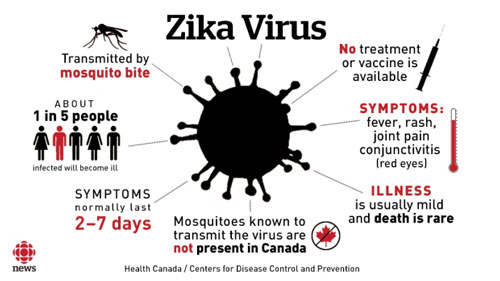
Comments Sort by : newest | oldest
September 3, 2021 at 7:45 pm
Sep 03, 2021 at 7:45 pm
October 19, 2021 at 8:46 pm
Oct 19, 2021 at 8:46 pm
Leave a Reply Cancel reply
Your email address will not be published. Required fields are marked *
Notify me when new comments are added.
Travel Vaccines and Advice for Thailand

Thailand is a popular destination with its tropical climate, food, culture and beaches.
Thai is the official language of Thailand. But, other smaller languages spoken in rural areas. The primary religion of Thailand is Buddhism and is prevalent in many aspects of culture throughout Thailand. Islam is also practiced in Southern provinces.
Bangkok, Thailand’s capital city, is also the largest city in the country. Bangkok is highly populated with congested streets, modern buildings and temples. It is most known for its nightlife.
Thailand’s other major cities include Ayutthaya, Chiang Mai, and Chiang Rai.
Do I Need Vaccines for Thailand?
Yes, some vaccines are recommended or required for Thailand. The CDC and WHO recommend the following vaccinations for Thailand: typhoid , cholera , hepatitis A , polio , yellow fever , Japanese encephalitis , chikungunya , rabies , hepatitis B , influenza , COVID-19 , pneumonia , chickenpox , shingles , Tdap (tetanus, diphtheria and pertussis) and measles, mumps and rubella (MMR) .
See the bullets below to learn more about some of these key immunizations:
- Typhoid – Food & Water – Recommended for travelers to most regions.
- Cholera – Food & Water – Cholera is rare, but present in Thailand. Vaccination is recommended for travelers at increased risk or visiting areas with active transmission.
- Hepatitis A – Food & Water – Recommended for most travelers.
- Polio – Food & Water – Generally considered a routine vaccination for most travel itineraries. Single adult booster recommended.
- Yellow Fever – Mosquito – Required if traveling from a country with risk of yellow fever transmission
- Japanese Encephalitis – Mosquito – Recommended depending on itinerary and activities. Recommended for extended travel, recurrent travelers and travel to rural areas. Present throughout country, especially northern regions. Most cases from May to October.
- Chikungunya – Mosquito – Thailand is a higher risk region. Vaccination is recommended.
- Rabies – Saliva of Infected Animals – High risk country. Vaccine recommended for long-term travelers and those who may come in contact with animals.
- Hepatitis B – Blood & Body Fluids – Recommended for travelers to most regions.
- Influenza – Airborne – Vaccine components change annually.
- COVID-19 – Airborne – Recommended for travel to all regions, both foreign and domestic.
- Pneumonia – Airborne – Two vaccines given separately. All 65+ or immunocompromised should receive both.
- Chickenpox – Direct Contact & Airborne – Given to those unvaccinated that did not have chickenpox.
- Shingles – Direct Contact – Vaccine can still be given if you have had shingles.
- TDAP (Tetanus, Diphtheria & Pertussis) – Wounds & Airborne – Only one adult booster of pertussis required.
- Measles Mumps Rubella (MMR) – Various Vectors – Given to anyone unvaccinated and/or born after 1957. One time adult booster recommended.
See the table below for more information:
Specific Vaccine Information
- Typhoid – Typhoid, caused by Salmonella Typhi, spreads via contaminated food and water, especially in areas with poor sanitation. Protect yourself by practicing good hygiene and safe food habits. Vaccination can significantly reduce the risk of typhoid infection, especially when traveling to endemic areas.
- Hepatitis A – Be sure to protect yourself from hepatitis A, a contagious liver infection caused by HAV, through vaccination. The virus spreads through contaminated food, water, and close contact. Along with vaccination, maintaining proper hygiene and avoiding undercooked shellfish are essential for prevention.
- Japanese Encephalitis – Japanese encephalitis is a mosquito-spread viral disease that affects the central nervous system. Prevention is achieved through protective attire and vaccination.
- Chikungunya – Chikungunya, a mosquito-borne virus, can be prevented by avoiding mosquito bites and reducing breeding sites. The chikungunya vaccine provides teh best protection.
- Rabies – Rabies is a deadly viral illness transmitted mainly through animal bites. Vaccination is pivotal, with pre-exposure and post-exposure options available to protect against this potentially fatal disease.
- Hepatitis B – The hepatitis B virus leads to liver infection through contact with infected fluids. The most effective safeguard is the hepatitis B vaccine, administered in a series of shots that stimulate the body to produce antibodies, providing long-term immunity. It is crucial for infants and those at an increased risk of exposure.
- Measles, Mumps, Rubella (MMR) – Measles, mumps, and rubella are viral infections that can spread through close contact and respiratory droplets. Vaccination is the most effective way to halt their transmission. The MMR vaccine, given in two doses, strengthens immunity, reducing the chances of contracting and spreading these diseases.
Malaria In Thailand
Malaria is primarily found the border provinces, near Burma, Cambodia and Malaysia. Some rare cases have been identified in Bangkok, Chiang Mai and Chiang Rai. Parasites in Thailand are resistant to chloroquine and mefloquine. Consult with a travel health specialist on which antimalarial will be best for your trip.
To find out more about these vaccines, see our vaccinations page. Ready to travel safely? Book your appointment either call or book online now.
Other Ways to Stay Healthy In Thailand
Prevent bug bites in thailand.
Safeguard against bug bites by dressing appropriately and using EPA-registered repellents with DEET, picaridin, or OLE. If bitten, cleanse the area, refrain from scratching, and mitigate discomfort with OTC treatments. Seek medical aid for serious reactions.
Food and Water Safety In Thailand
When traveling, ensure food safety by adhering to CDC recommendations, which include eating fully cooked foods, avoiding raw seafood, and selecting reputable dining places. Safely drink bottled beverages, avoiding ice in uncertain water sources, and consume alcohol in moderation. Prevent travelers’ diarrhea through hand hygiene and avoiding street food in unsanitary areas.
Infections To Be Aware Of In Thailand
- Avian/Bird Flu – Avian flu, also known as bird flu, is a contagious virus that affects birds and can spread to humans. Preventing it involves vaccination of poultry, strict biosecurity on farms, safe handling and cooking of poultry, surveillance for outbreaks, and raising public awareness.
- Dengue – Dengue fever is a mosquito-borne illness with symptoms ranging from mild to severe, including high fever and pain. The CDC emphasizes prevention through avoiding mosquito bites by using repellents and removing standing water. Treatment focuses on symptom relief and hydration, avoiding certain pain relievers that can worsen bleeding risks.
- Leishmaniasis – Leishmaniasis is transmitted by sand flies’ bites. To prevent its spread, individuals should use insect repellents, wear long-sleeved clothing and limit outdoor activities during sand fly activity periods. Eliminating breeding sites and early diagnosis are crucial for effective prevention.
- Zika – Zika, a mosquito-borne virus, can cause mild to severe symptoms and poses significant risks during pregnancy. Prevention strategies include using insect repellent, safe sex practices, and avoiding travel to affected areas.
Do I Need a Visa or Passport for Thailand?
U.S. citizens staying in Thailand for 30 days or less do not need a visa. But, their passport must be valid for at least six months from the date of entry.
Sources: Embassy of Thailand and U.S. State Department
Always carry your passport and visa with you to avoid arrest in Thailand.
What is the Climate Like in Thailand?
Thailand is a country with a tropical climate that is hot and humid throughout the year. The temperature ranges from 25 to 35 degrees Celsius during the day. The weather can be different depending on where you are in Thailand. Here are some popular tourist destinations:
- Bangkok : Bangkok is hot and humid all year round. It rains a lot, especially between May and October.
- Phuket : Phuket is a tropical place. It can rain a lot from May to October. The temperature is usually between 75 and 90 degrees.
- Chiang Mai : Chiang Mai has a tropical climate with three different seasons: cool, hot, and rainy. The cool season runs from November to February, the hot season from March to May, and the rainy season from June to October.
- Pattaya : Pattaya is hot and humid all year round. It rains a lot, especially between May and October.
- Koh Samui : Koh Samui is an island that has two different seasons: dry and rainy. The dry season runs from December to April, and the rainy season from May to November.
Remember that weather can change, so always check the forecast before you travel.
How Safe is Thailand?
In the past few years, there have been periodic terrorist attacks at popular tourist attractions in Thailand,. This remains a high-concern today. There is an ongoing risk of terrorist attacks in Thailand.
The National Council for Peace and Order (NCPO) has placed strict restrictions on media and have banned political gatherings. Tourists may be detained by the military for openly criticizing the NCPO.
Pick-pocketing is common in Thailand as is sexual violence in bars and isolated areas.
Do not use your passport as collateral. Many rental places are scams.
In Southern Thailand (Yala, Pattani, Narathiwat, and Songkhla), martial law is still prevalent. Tourists are cautioned against traveling to these areas.
Temples in Thailand
Avoid mosquitoes and other bugs, insect-borne disease are a threat throughout the world., keep the bugs away with passport health’s repellent options .
There are over 40,000 temples in Thailand, making them popular tourist attractions. These temples range in age and architecture and many are still in use today.
Wat Pho, located in Bangkok, is one of the most popular due to its size and attractions within. It is one of the largest complexes in the country, holding many buildings. Wat Pho houses the largest reclining Buddha and largest collection of Buddha images.
The site is also headquarters for the teaching and preservation of Thai medicine. There, tourists can find two massage schools and pavilions.
You must take off your shoes to enter and you purchase coins to put into bowls for good luck. All the money goes towards renovating and up-keeping the site.
What Should I Take To Thailand?
Thailand is a hot and humid country, it’s important to pack lightweight and comfortable clothing. You should bring comfortable shoes for walking, sun protection like sunscreen, hats, and sunglasses to avoid the strong sun rays. Mosquitoes are common in Thailand, so it’s important to bring insect repellent to avoid bites.
Thailand uses different types of electrical outlets, so it’s recommended to bring a universal adapter. It’s also recommended to pack any prescription medication and over-the-counter medications such as pain relievers, anti-diarrhea medication, and motion sickness medication.
Thailand is a cash-based society, so it’s important to bring cash and credit cards. If you plan to visit the beaches or go swimming, don’t forget to pack swimwear and a beach towel. When visiting temples or other religious sites, make sure to dress respectfully, covering your shoulders and knees, and avoid wearing revealing clothing in public places.
Don’t forget to bring your passport, visa (if required), travel insurance, and any other important travel documents.
U.S. Embassy in Thailand
All Americans visiting Tunisia should register online with the U.S. Department of State before departure. This will inform the office of your travel plans within the country and will allow them to reach out in the case of an emergency or evacuation.
Once in Thailand, the information for the U.S. Embassy is:
U.S. Embassy Bangkok 95 Wireless Road Bangkok 10330 Thailand Telephone: + (66) (2) 205-4049, 02-205-4049 (within Thailand) Emergency After-Hours Telephone: +(66) (2) 205-4000, 02-205-4000 (within Thailand) Fax: +(66) (2) 205-4103, 02-205-4103 (within Thailand) Email: [email protected]
If you have any questions about traveling to Thailand or are wondering what shots you may need for your trip, schedule an appointment with your local Passport Health travel medicine clinic. Call us at or book online now! and protect yourself today.
Customer Reviews
Passport health – travel vaccines for thailand.
On This Page: Do I Need Vaccines for Thailand? Is Cholera in Thailand? Do I Need a Visa or Passport for Thailand? What is the Climate Like in Thailand? How Safe is Thailand? Temples in Thailand What Should I Take To Thailand? U.S. Embassy in Thailand

- Records Requests
- Passport Health App
- Privacy Center
- Online Store
- Company History
- Mission Statement
- Philippines
- South Africa
- Afghanistan
- American Samoa
- Antigua and Barbuda
- British Virgin Islands
- Burkina Faso
- Canary Islands
- Cayman Islands
- Central African Republic
- Christmas Island
- Cocos (Keeling) Islands
- Cook Islands
- Cote d'Ivoire
- Democratic Republic of the Congo
- Dominican Republic
- Easter Island
- El Salvador
- Equatorial Guinea
- Falkland Islands
- Faroe Islands
- French Guiana
- French Polynesia
- Guinea-Bissau
- Liechtenstein
- Madeira Islands
- Marshall Islands
- Netherlands
- New Caledonia
- New Zealand
- Norfolk Island
- North Korea
- North Macedonia
- Northern Mariana Islands
- Palestinian Territories
- Papua New Guinea
- Pitcairn Islands
- Puerto Rico
- Republic of the Congo
- Saint Barthelemy
- Saint Helena
- Saint Kitts and Nevis
- Saint Lucia
- Saint Martin
- Saint Pierre-et-Miquelon
- Saint Vincent and the Grenadines
- Sao Tome and Principe
- Saudi Arabia
- Sierra Leone
- Sint Eustatius
- Solomon Islands
- South Georgia and the South Sandwich Islands
- South Korea
- South Sudan
- Switzerland
- Trinidad and Tobago
- Turkmenistan
- Turks and Caicos Islands
- U.S. Virgin Islands
- United Arab Emirates
- United Kingdom
- United States
- Wake Island
- Western Sahara
- Travel Vaccines
- Travel Health Consultations
- Travellers’ Diarrhea Kits
- Dengue Fever Prevention
- Malaria Prevention
- Chikungunya Prevention
- Zika Prevention
- Ebola Virus
- Yellow Fever
- Hepatitis A
- Japanese Encephalitis
- Hepatitis B
- Tickborne Encephalitis (TBE)
- Tetanus-Diphtheria-Pertussis
- Measles-Mumps-Rubella
- Influenza (Flu)
- Blood Tests
- Vitamin Injections
- Physician Referral Program
- London – Euston Travel Clinic

Travel Vaccines and Advice for Thailand

Thailand is a popular destination with its tropical climate, food, culture and seasides.
Thai is the official language of Thailand. But, other smaller languages spoken in rural areas. The primary religion of Thailand is Buddhism and is prevalent in many aspects of culture throughout Thailand. Islam is also practiced in Southern provinces.
Bangkok, Thailand’s capital city, is also the largest city in the country. Bangkok is highly populated with congested streets, modern buildings and temples. It is most known for its nightlife.
Thailand’s other major cities include Ayutthaya, Chiang Mai, and Chiang Rai.
Do I Need Vaccines for Thailand?
See the bullets below to learn more about some of these key immunisations:
- Hepatitis A – Food & Water – Recommended for most travellers to the region, especially if unvaccinated.
- Hepatitis B – Blood & Body Fluids – Recommended for travellers to most regions.
- Tetanus – Wounds or Breaks in Skin – Recommended for travellers to most regions, especially if not previously vaccinated.
- Typhoid – Food & Water – Jab lasts 3 years. Oral vaccine lasts 5 years, must be able to swallow pills. Oral doses must be kept in refrigerator.
- Yellow Fever – Mosquito – Required if travelling from a country with risk of yellow fever transmission
- Japanese Encephalitis – Mosquito – Recommended depending on itinerary and activities. Recommended for extended travel, recurrent travellers and travel to rural areas. Present throughout country, especially northern regions. Most cases from May to October.
- Rabies – Saliva of Infected Animals – High risk country. Vaccine recommended for long-stay travellers and those who may come in contact with animals.
See the tables below for more information:
Various mosquito-borne diseases are present in Thailand. Malaria poses a threat to travellers to some regions of the country. Ensure you are protected with antimalarials.
Dengue , Zika and chikungunya can also be found in Thailand. While there are no vaccines available for these diseases, there are steps you can take to prevent them. Be sure to use mosquito repellents, netting and wear proper clothing.
Medical treatment is adequate and common in urban areas. Healthcare is also available in rural areas, though the health care providers may not speak English.
To find out more about these vaccines, see our vaccinations page . Ready to travel safely? Book your appointment either ring or start booking online now .
Do I Need a Visa or Passport for Thailand?
No visa is required for stays under 30 days in Thailand if arriving by air for tourism purposes. Other types of travellers may require a visa. Passports must be valid for at least six months beyond the date of entry. Proof of yellow fever vaccination may be required if you are travelling from a region where yellow fever is present.
Sources: Embassy of Thailand and GOV.UK
What is the Climate Like in Thailand?
Thailand has a tropical climate, warm and humid with temperatures are around 30.
There are three seasons in Thailand: the cool season (November-February); the hot season (March-May); and the rainy season (June-October).
The most popular tourist times are between November and March, when weather is mild and enjoyable.
How Safe is Thailand?
In the past few years, there have been periodic terrorist attacks at popular tourist attractions in Thailand,. This remains a high-concern today. There is an ongoing risk of terrorist attacks in Thailand.
The National Council for Peace and Order (NCPO) has placed strict restrictions on media and have banned political gatherings. Tourists may be detained by the military for openly criticising the NCPO.
Pick-pocketing is common in Thailand as is sexual violence in bars and isolated areas.
Do not use your passport as collateral. Many rental places are scams.
In Southern Thailand (Yala, Pattani, Narathiwat, and Songkhla), martial law is still prevalent. Tourists are cautioned against travelling to these areas.
Temples in Thailand
There are over 40,000 temples in Thailand, making them popular tourist attractions. These temples range in age and architecture and many are still in use today.
Wat Pho, located in Bangkok, is one of the most popular due to its size and attractions within. It is one of the largest complexes in the country, holding many buildings. Wat Pho houses the largest reclining Buddha and largest collection of Buddha images.
The site is also headquarters for the teaching and preservation of Thai medicine. There, tourists can find two massage schools and pavilions.
You must take off your shoes to enter and you purchase coins to put into bowls for good luck. All the money goes towards renovating and upkeeping the site.
What Should I Take To Thailand?
Here are some essential items to consider for your trip to Thailand:
- Slip-on Shoes are best, especially if you’re planning to travel to many temples. You will need to take your shoes off quite frequently.
- Insect spray to ward off mosquitoes that could be carrying disease.
- Shops in Thailand have sun cream, but your options are limited.
- If you’re planning on visiting temples, buy clothing items that cover your shoulders, knees and ankles.
Embassy of the United Kingdom in Thailand
If you are in Thailand and have an emergency (for example, been attacked, arrested or someone has died) contact the nearest consular services. Contact the embassy before arrival if you have additional questions on entry requirements, safety concerns or are in need of assistance.
British Embassy Bangkok AIA Sathorn Tower, Floor 12A 11/1 South Sathorn Road, Sathorn Bangkok 10120 Thailand Telephone: +66 (0) 2 305 8333 Emergency Phone: +66(0)2 305 8333 Fax: +66 (0) 2 255 9278 Contact Form: Click Here
If you have any questions about travelling to Thailand or are wondering which jabs you may need for your trip, schedule an appointment with your local Passport Health travel medicine clinic. Ring us up at or book online now and protect yourself today.
On This Page: Do I Need Vaccines for Thailand? Do I Need a Visa or Passport for Thailand? What is the Climate Like in Thailand? How Safe is Thailand? Temples in Thailand What Should I Take To Thailand? Embassy of the United Kingdom in Thailand

- Privacy Policy
- Automatic Data Collection Statement

Update to Covid-19 vaccine guide for travellers to Thailand

The Tourism Authority of Thailand (TAT) on Monday provided an update to guide to Covid-19 vaccines for international travellers to Thailand effective from December 16, 2021.
International travellers, including returning Thais and foreign residents, who are above 18 years of age should get fully vaccinated for Covid-19 with a vaccine approved by Thailand’s Ministry of Public Health (MoPH) or the World Health Organisation (WHO) no less than 14 days before their travel date.
Travellers 12-17 years of age, travelling with parents under the Test & Go entry scheme and Sandbox Programme, are not required to be vaccinated but must have a negative RT-PCR test result within 72 hours before travelling. Those unaccompanied must get vaccinated with at least one dose of an approved vaccine and must have a negative RT-PCR test result.
Travellers 6-11 years of age, travelling with parents under the Test & Go entry scheme and Sandbox Programme, must have a negative RT-PCR test result within 72 hours before travelling.
Travellers under 6 years of age, travelling with parents with a negative RT-PCR test result within 72 hours before travelling, are not required to have a pre-arrival negative RT-PCR test result and can have saliva test when entering the Kingdom.
Travellers previously infected within 3 months before travelling must have a medical certificate of recovery or get vaccinated with at least one dose of an approved vaccine for an unspecified period of time before travelling.
List of approved Covid-19 vaccines
Currently, the MoPH has approved the following manufacturers and vaccines:
- CoronaVac by Sinovac Biotech Ltd – 2 doses needed / 2-4-week interval;
- AstraZeneca or Covishield by AstraZeneca and the University of Oxford, SK Bioscience (South Korea), Siam Bioscience, and Serum Institute of India (Covishield) – 2 doses needed / 4-12-week interval;
- Pfizer–BioNTech or Comirnaty by Pfizer Inc. and BioNTech 2 doses needed / 3-week interval;
- Janssen or Janssen/Ad26.COV2.S by Johnson & Johnson Services, Inc. – 1 dose needed;
- Moderna by Moderna Inc. – 2 doses needed / 4-week interval);
- Sinopharm or COVILO by Sinopharm Co., Ltd. – 2 doses needed / 3-4-week interval);
- Sputnik V by the Gamaleya Research Institute of Epidemiology and Microbiology – 2 doses needed – 3-week interval).
Meanwhile, the WHO’s guidance on the Covid-19 vaccines is available here .
Have you been fully vaccinated?
According to the MoPH, travellers are considered fully vaccinated if:
- They get their second dose of a 2-dose vaccine; such as, the AstraZeneca or Pfizer vaccines, no less than 14 days before their travel date to Thailand.
- They get a single-dose vaccine; such as, Janssen vaccine, no less than 14 days before their travel date to Thailand.
- In case of mix-and-match vaccines, travellers should get their second dose of a different vaccine within the recommended interval of the first vaccine no less than 14 days before their travel date to Thailand. For example, if the first vaccine is CoronaVac from Sinovac Biotech and the second vaccine is AstraZeneca, the time between the two doses is 2-4 weeks.
Travellers who do not meet these criteria may be denied entry into Thailand.
Requirements for the ‘Certificate of Covid-19 Vaccination’
The travellers’ Certificate of Covid-19 Vaccination should contain the following details:
- Given name and last name;
- Date of Birth;
- Nationality;
- Passport or Identification No.;
- Name of the Covid-19 vaccine;
- Vaccination dates;
- Vaccine manufacturer and lot/batch number;
- Authorised organisation in the country of origin.
In addition to being fully vaccinated, international travellers should have all of their advance arrangements in good order for arrival and entry. For more information on Thailand’s reopening programmes, see: https://www.tatnews.org/thailand-reopening/ .
COVID-19 vaccine guide for travellers to Thailand
Bangkok, Updated on 28 June, 2022.
List of approved COVID-19 vaccines in Thailand
- CoronaVac (Sinovac) – 2 doses needed / 2nd dose after 2-4 weeks;
- AstraZeneca (Vaxzevria, Covishield) – 2 doses needed / 2nd dose after 4-12 weeks;
- Pfizer-BioNTech (Comirnaty, Tozinameran (INN)) – 2 doses needed / 2nd dose after 3 week;
- Janssen (Johnson & Johnson) – 1 dose needed;
- Moderna (Spikevax) – 2 doses needed / 2nd dose after 4 weeks);
- COVILO (Sinopharm, Hayat-Vax) – 2 doses needed / 2nd dose after 3-4 weeks);
- Sputnik V – 2 doses needed / 2nd dose after 3 weeks);
- Covaxin – 2 doses needed / 2nd dose after 4 weeks;
- Novavax (Nuvaxovid) / Covovax – 2 doses needed / 2nd dose after 3 weeks);
- Medigen – 2 doses needed / 2nd dose after 4 weeks;
- TURKOVAC / ERUCOV-VAC – 2 doses needed / 2nd dose after 4 weeks;
- Sputnik Light – 1 dose needed;
- CansinoBio (Ad5-nCov / Convidecia) – 1 dose needed.
Have you been fully vaccinated?
According to the MoPH, travellers are considered fully vaccinated if:
- They get their second dose of a 2-dose vaccine no less than 14 days before their travel date to Thailand.
- They get a single-dose vaccine no less than 14 days before their travel date to Thailand.
- In case of mix-and-match vaccines, travellers should get their second dose of a different vaccine within the recommended interval of the first vaccine no less than 14 days before their travel date to Thailand.
Requirements for the ‘Certificate of COVID-19 Vaccination’
The travellers’ Certificate of COVID-19 Vaccination should contain the following details:
- Given name and last name;
- Date of Birth;
- Nationality;
- Passport or Identification No.;
- Name of the COVID-19 vaccine;
- Vaccination dates;
- Vaccine manufacturer and lot/batch number;
- Authorised organisation in the country of origin.
Who need to be vaccinated to enter Thailand?
- Everyone 18 years of age and older must be fully vaccinated for COVID-19 with an approved vaccine at least 14 days before travelling to Thailand.
- Travellers 5-17 years of age travelling to Thailand unaccompanied must get vaccinated with at least 1 dose of an approved vaccine at least 14 days before travelling to Thailand. Those travelling with parents are exempt from this requirement.
Guidelines for travellers who have previously been infected with COVID-19
- Those previously infected with COVID-19 are considered fully vaccinated if they have received a single dose of COVID-19 vaccine at any time after their recovery. They are required to submit proof or medical record of COVID-19 recovery alongside the single-dose vaccination certificate.
- Those fully vaccinated before contracting COVID-19 are still considered to be fully vaccinated.
- Those recovered from COVID-19 within 3 months before travelling to Thailand must present a valid medical certificate certifying the full recovery (within 3 months but no less than 14 days before travelling) or that they are asymptomatic in case the COVID-19 RT-PCR – or professional ATK – test shows a positive result.
In addition to being fully vaccinated, international travellers should have all of their advance arrangements in good order for arrival and entry. For more information: https://www.tatnews.org .
TAT Newsroom
Tat welcomes japanese idol group fes☆tive to thailand, ubon ratchathani candle festival 2022 set to wow visitors, related articles.

Thailand Suspends Filing of TM6 Immigration Form for Land and Sea Arrivals

Thailand expands visa-free access for tourists from China and Kazakhstan

This website uses cookies to ensure you get the best experience on our website. Learn more

Information on how to stay safe and healthy abroad. About us.
- Destinations
- Asia (East)
- Asia (Central)
- Australasia & Pacific
- Central America
- Europe & Russia
- Middle East
- North America
- South America & Antarctica
Thailand (Asia)
Advice for all destinations.
Read the information on the COVID-19: Health Considerations for Travel page for advice on travelling during the COVID-19 pandemic.
Vaccinations and malaria risk
Review both the Vaccination and Malaria sections on this page to find out if you may need vaccines and/or a malaria risk assessment before you travel to this country.
If you think you require vaccines and/or malaria risk assessment, you should make an appointment with a travel health professional:
- How to make an appointment with a travel health professional
A travel health risk assessment is also advisable for some people, even when vaccines or malaria tablets are not required.
- Do I need a travel health risk assessment?
Risk prevention advice
Many of the health risks experienced by travellers cannot be prevented by vaccines and other measures need to be taken.
Always make sure you understand the wider risks at your destination and take precautions, including:
- food and water safety
- accident prevention
- avoiding insect bites
- preventing and treating animal bites
- respiratory hygiene
- hand hygiene
Our advice section gives detailed information on minimising specific health risks abroad:
- Travel Health Advice A-Z
Other health considerations
Make sure you have travel insurance before travel to cover healthcare abroad.
Find out if there are any restrictions you need to consider if you are travelling with medicines .
Know how to access healthcare at your destination: see the GOV.UK English speaking doctors and medical facilities: worldwide list
If you feel unwell on your return home from travelling abroad, always seek advice from a healthcare professional and let them know your travel history.
Vaccinations
- Confirm primary courses and boosters are up to date as recommended for life in Britain - including for example, seasonal flu vaccine (if indicated), MMR , vaccines required for occupational risk of exposure, lifestyle risks and underlying medical conditions.
- Courses or boosters usually advised: none.
- Other vaccines to consider: Diphtheria; Hepatitis A; Hepatitis B; Rabies; Tetanus; Typhoid.
- Selectively advised vaccines - only for those individuals at highest risk: Japanese Encephalitis.
Yellow fever vaccination certificate required for travellers aged 9 months or over arriving from countries with risk of yellow fever transmission and for travellers having transited more than 12 hours through an airport of a country with risk of yellow fever transmission.
Notes on the diseases mentioned above
- Diphtheria : spread person to person through respiratory droplets. Risk is higher if mixing with locals in poor, overcrowded living conditions.
Risk is higher where personal hygiene and sanitation is poor.
Risk is higher for long stays, frequent travel and for children (exposed through cuts and scratches), those who may require medical treatment during travel.
- Japanese Encephalitis : spread through the bite of an infected mosquito. This mosquito breeds in rice paddies and mainly bites between dusk and dawn. Risk is highest for long stay travellers to rural areas, particularly if unable to avoid mosquito bites.
- Tetanus : spread through contamination of cuts, burns and wounds with tetanus spores. Spores are found in soil worldwide. A total of 5 doses of tetanus vaccine are recommended for life in the UK. Boosters are usually recommended in a country or situation where the correct treatment of an injury may not be readily available.
- Typhoid : spread mainly through consumption of contaminated food and drink. Risk is higher where access to adequate sanitation and safe water is limited.
Malaria is a serious and sometimes fatal disease transmitted by mosquitoes.You cannot be vaccinated against malaria.
Malaria precautions
- Malaria risk exists in the forested and hilly areas mainly towards the international borders, all year round. There is also a risk in inland areas of Surat Thani province and parts of the southern border with Malaysia. There is low to no risk in the cities of Bangkok, Chiang Mai, Chiang Rai, Mae Sot, Pattay and Phuket, the islands of Ko Samui and Ko Chang and the River Quai bridge area.
- Malaria precautions are essential. Avoid mosquito bites by covering up with clothing such as long sleeves and long trousers especially after sunset, using insect repellents on exposed skin and, when necessary, sleeping under a mosquito net.
- Check with your doctor or nurse about suitable antimalarial tablets.
- See malaria map – additional information can be found by clicking on the Regional Information icon below the map.
- High risk areas: atovaquone/proguanil OR doxycycline is advised throughout the year.
- Low to no risk areas: antimalarials are not usually advised.
- If you have been travelling in a malarious area and develop a fever seek medical attention promptly. Remember malaria can develop even up to one year after exposure.
- If travelling to an area remote from medical facilities, carrying standby emergency treatment for malaria may be considered.
Other Health Risks
Altitude and travel, dengue fever.
There is a risk of exposure to coronavirus (COVID-19) in this country.
Please be aware that the risk of COVID-19 in this country may change at short notice and also consider your risk of exposure in any transit countries and from travelling itself.
- The 'News' section on this page will advise if significant case increases or outbreaks have occurred in this country.
Prior to travel, you should:
- Check the latest government guidance on the FCDO Foreign travel advice and country specific pages for travel to this country and the rules for entering the UK on return.
- Ensure you are up to date with UK recommendations on COVID-19 vaccination.
- You can check this in the FAQ's.
- If you are at increased risk of severe COVID-19 you should carefully consider your travel plans and consider seeking medical advice prior to making any decisions.
For further information, see Coronavirus disease (COVID-19) and COVID-19: Health Considerations for Travel pages.
Zika Virus Infection
This country has been categorised as having a risk of Zika (ZIKV) virus transmission.
ZIKV is mainly spread through mosquito bites. The mosquito responsible most commonly bites during daylight hours and is common in towns and cities.
The illness is usually mild but infection during pregnancy may lead to babies being born with birth defects. There is no vaccine currently available against ZIKV.
Advice for All Travellers
You should practice strict mosquito bite avoidance at all times. Do not travel without adequate travel insurance . Seek pre-travel health advice from a travel health professional 6 to 8 weeks in advance of travel.
Additional recommendations for pregnant travellers or those planning pregnancy
If you are planning pregnancy in the very near future you should consider whether you should avoid travel to this country.
- contact your GP, obstetrician or midwife for further advice, even if you have not been unwell or had any symptoms of ZIKV infection
- use barrier methods of contraception during and after travel and for the duration of your pregnancy, even in you have not been unwell or had any symptoms of ZIKV infection
- If you develop symptoms of ZIKV infection, it is recommended that you avoid becoming pregnant for a further 2 months following your recovery
- 2 months afterwards if you are female
- 3 months afterwards if you are male or if both partners travelled
These measures reduce the chance of sexual transmission of ZIKV and/or the risk of ZIKV infection in pregnancy.
For further information, see Zika virus infection page.
- 89 additional items in the news archive for this country
back to top
Covid-jab rules for travellers confirmed
Aviation regulator says requirement will apply to all passengers on international flights landing from 1am Monday
PUBLISHED : 7 Jan 2023 at 20:50
WRITER: Online Reporters

The requirement that all international travellers show proof of full Covid-19 vaccination before boarding flights to Thailand will take effect from Sunday, the Civil Aviation Authority of Thailand (CAAT) said on Saturday.
The aviation regulator has formally notified all parties about the change to arrival rules for international travellers aged 18 and over. They will take effect for flights landing in Thailand from 1am local time on Monday and will remain in effect at least until the end of the month.
The vaccination requirement was scrapped last October but it has been revived as travel from China is about to resume worldwide on a large scale. Many countries have responded with special measures out of concern that Covid-19 is sweeping through China since the country scrapped its zero-Covid restrictions last month.
Public Health Minister Anutin Charnvirakul has said that any rules adopted in Thailand must not discriminate against any particular country.
According to the CAAT, everyone travelling to the country from Sunday must show proof of full vaccination or a letter certifying that they have recovered from Covid-19 infections no more than six months prior. Unvaccinated travellers must have proof of why they cannot receive a vaccine.
Details of the approved vaccines and required number of doses are available on the CAAT website .
Airlines will be responsible for checking the relevant documents before passengers board and must bar those without the correct paperwork. It is not clear whether passengers will also be required to show the documents again when they land in Thailand.
As well, people who will be travelling from Thailand to a country where a negative RT-PCR test is a condition of entry must show proof of health insurance. This is to ensure that the costs of their care will be covered if they test positive before leaving Thailand.
Thai passport holders or travellers in transit are not required to submit proof of vaccination or hold a Covid-19 insurance policy.
A Xiamen Airlines flight with 200 passengers is scheduled to be the first flight from China to touch down at Suvarnabhumi Airport on Sunday.
- Coronavirus
- International travellers
RECOMMENDED
Bma to spruce up busy pedestrian areas, no wage hike on labour day, police explain inaction after tak bai massacre, global architects to convene at asa international forum 2024, 2 japanese gangster suspects in thailand murder flee to laos.
You are using an outdated browser. Upgrade your browser today or install Google Chrome Frame to better experience this site.
Thailand Traveler View
Travel health notices, vaccines and medicines, non-vaccine-preventable diseases, stay healthy and safe.
- Packing List
After Your Trip
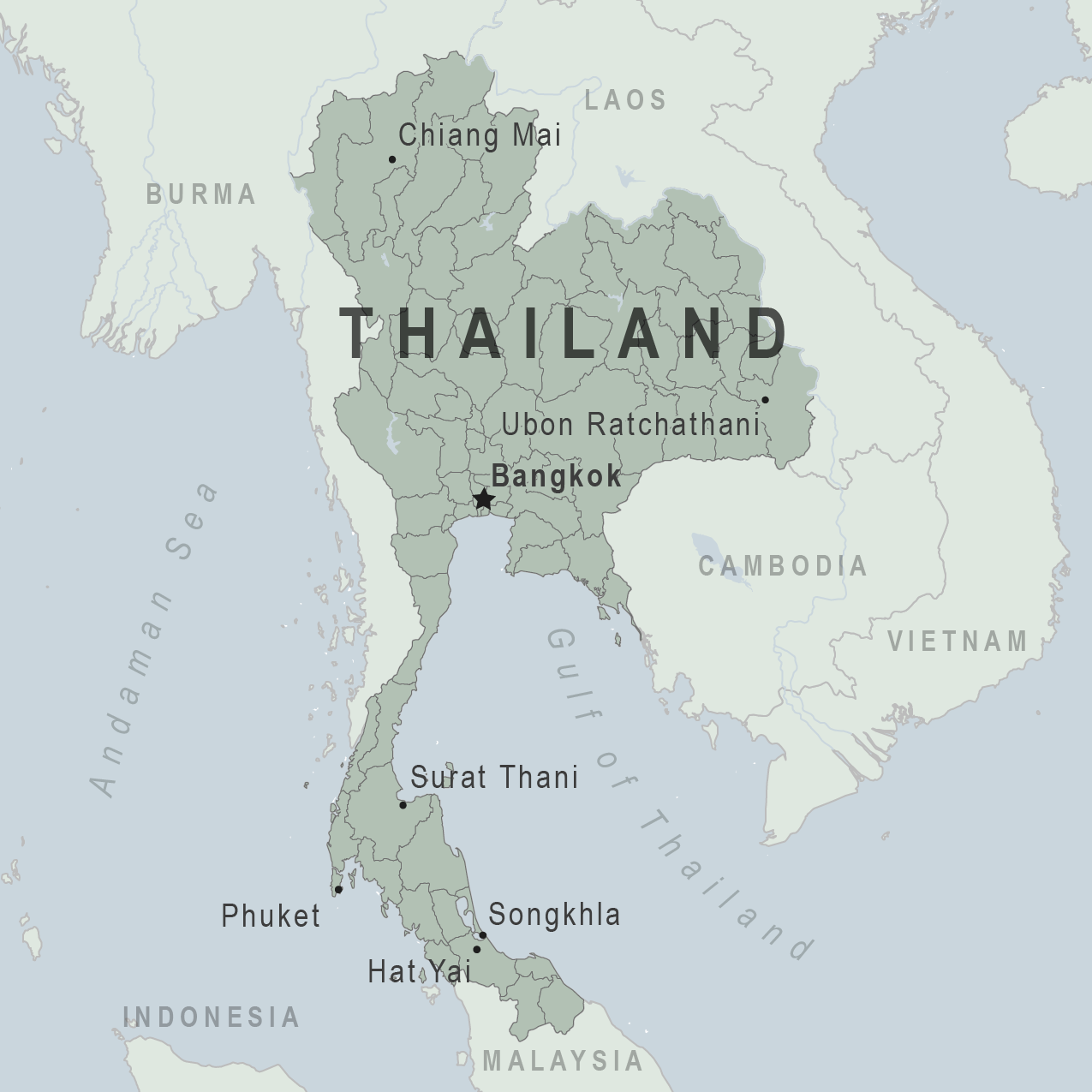
There are no notices currently in effect for Thailand.
⇧ Top
Check the vaccines and medicines list and visit your doctor at least a month before your trip to get vaccines or medicines you may need. If you or your doctor need help finding a location that provides certain vaccines or medicines, visit the Find a Clinic page.
Routine vaccines
Recommendations.
Make sure you are up-to-date on all routine vaccines before every trip. Some of these vaccines include
- Chickenpox (Varicella)
- Diphtheria-Tetanus-Pertussis
- Flu (influenza)
- Measles-Mumps-Rubella (MMR)
Immunization schedules
All eligible travelers should be up to date with their COVID-19 vaccines. Please see Your COVID-19 Vaccination for more information.
COVID-19 vaccine
There is no longer active cholera transmission and vaccine is not recommended.
Cholera - CDC Yellow Book
Hepatitis A
Recommended for unvaccinated travelers one year old or older going to Thailand.
Infants 6 to 11 months old should also be vaccinated against Hepatitis A. The dose does not count toward the routine 2-dose series.
Travelers allergic to a vaccine component or who are younger than 6 months should receive a single dose of immune globulin, which provides effective protection for up to 2 months depending on dosage given.
Unvaccinated travelers who are over 40 years old, immunocompromised, or have chronic medical conditions planning to depart to a risk area in less than 2 weeks should get the initial dose of vaccine and at the same appointment receive immune globulin.
Hepatitis A - CDC Yellow Book
Dosing info - Hep A
Hepatitis B
Recommended for unvaccinated travelers younger than 60 years old traveling to Thailand. Unvaccinated travelers 60 years and older may get vaccinated before traveling to Thailand.
Hepatitis B - CDC Yellow Book
Dosing info - Hep B
Japanese Encephalitis
Recommended for travelers who
- Are moving to an area with Japanese encephalitis to live
- Spend long periods of time, such as a month or more, in areas with Japanese encephalitis
- Frequently travel to areas with Japanese encephalitis
Consider vaccination for travelers
- Spending less than a month in areas with Japanese encephalitis but will be doing activities that increase risk of infection, such as visiting rural areas, hiking or camping, or staying in places without air conditioning, screens, or bed nets
- Going to areas with Japanese encephalitis who are uncertain of their activities or how long they will be there
Not recommended for travelers planning short-term travel to urban areas or travel to areas with no clear Japanese encephalitis season.
Japanese encephalitis - CDC Yellow Book
Japanese Encephalitis Vaccine for US Children
CDC recommends that travelers going to certain areas of Thailand take prescription medicine to prevent malaria. Depending on the medicine you take, you will need to start taking this medicine multiple days before your trip, as well as during and after your trip. Talk to your doctor about which malaria medication you should take.
Find country-specific information about malaria.
Malaria - CDC Yellow Book
Considerations when choosing a drug for malaria prophylaxis (CDC Yellow Book)
Malaria information for Thailand.
Cases of measles are on the rise worldwide. Travelers are at risk of measles if they have not been fully vaccinated at least two weeks prior to departure, or have not had measles in the past, and travel internationally to areas where measles is spreading.
All international travelers should be fully vaccinated against measles with the measles-mumps-rubella (MMR) vaccine, including an early dose for infants 6–11 months, according to CDC’s measles vaccination recommendations for international travel .
Measles (Rubeola) - CDC Yellow Book
Rabid dogs are commonly found in Thailand. However, if you are bitten or scratched by a dog or other mammal while in Thailand, rabies treatment is often available.
Consider rabies vaccination before your trip if your activities mean you will be around dogs or wildlife.
Travelers more likely to encounter rabid animals include
- Campers, adventure travelers, or cave explorers (spelunkers)
- Veterinarians, animal handlers, field biologists, or laboratory workers handling animal specimens
- Visitors to rural areas
Since children are more likely to be bitten or scratched by a dog or other animals, consider rabies vaccination for children traveling to Thailand.
Rabies - CDC Yellow Book
Recommended for most travelers, especially those staying with friends or relatives or visiting smaller cities or rural areas.
Typhoid - CDC Yellow Book
Dosing info - Typhoid
Yellow Fever
Required for travelers ≥9 months old arriving from countries with risk for YF virus transmission; this includes >12-hour airport transits or layovers in countries with risk for YF virus transmission. 1
Yellow Fever - CDC Yellow Book
Avoid contaminated water
Leptospirosis
How most people get sick (most common modes of transmission)
- Touching urine or other body fluids from an animal infected with leptospirosis
- Swimming or wading in urine-contaminated fresh water, or contact with urine-contaminated mud
- Drinking water or eating food contaminated with animal urine
- Avoid contaminated water and soil
Clinical Guidance
Avoid bug bites.
Chikungunya
- Mosquito bite
- Avoid Bug Bites
- Mosquito bite
Leishmaniasis
- Sand fly bite
- An infected pregnant woman can spread it to her unborn baby
Airborne & droplet
Avian/bird flu.
- Being around, touching, or working with infected poultry, such as visiting poultry farms or live-animal markets
- Avoid domestic and wild poultry
- Breathing in air or accidentally eating food contaminated with the urine, droppings, or saliva of infected rodents
- Bite from an infected rodent
- Less commonly, being around someone sick with hantavirus (only occurs with Andes virus)
- Avoid rodents and areas where they live
- Avoid sick people
Tuberculosis (TB)
- Breathe in TB bacteria that is in the air from an infected and contagious person coughing, speaking, or singing.
Learn actions you can take to stay healthy and safe on your trip. Vaccines cannot protect you from many diseases in Thailand, so your behaviors are important.
Eat and drink safely
Food and water standards around the world vary based on the destination. Standards may also differ within a country and risk may change depending on activity type (e.g., hiking versus business trip). You can learn more about safe food and drink choices when traveling by accessing the resources below.
- Choose Safe Food and Drinks When Traveling
- Water Treatment Options When Hiking, Camping or Traveling
- Global Water, Sanitation and Hygiene | Healthy Water
- Avoid Contaminated Water During Travel
You can also visit the Department of State Country Information Pages for additional information about food and water safety.
Prevent bug bites
Bugs (like mosquitoes, ticks, and fleas) can spread a number of diseases in Thailand. Many of these diseases cannot be prevented with a vaccine or medicine. You can reduce your risk by taking steps to prevent bug bites.
What can I do to prevent bug bites?
- Cover exposed skin by wearing long-sleeved shirts, long pants, and hats.
- Use an appropriate insect repellent (see below).
- Use permethrin-treated clothing and gear (such as boots, pants, socks, and tents). Do not use permethrin directly on skin.
- Stay and sleep in air-conditioned or screened rooms.
- Use a bed net if the area where you are sleeping is exposed to the outdoors.
What type of insect repellent should I use?
- FOR PROTECTION AGAINST TICKS AND MOSQUITOES: Use a repellent that contains 20% or more DEET for protection that lasts up to several hours.
- Picaridin (also known as KBR 3023, Bayrepel, and icaridin)
- Oil of lemon eucalyptus (OLE) or para-menthane-diol (PMD)
- 2-undecanone
- Always use insect repellent as directed.
What should I do if I am bitten by bugs?
- Avoid scratching bug bites, and apply hydrocortisone cream or calamine lotion to reduce the itching.
- Check your entire body for ticks after outdoor activity. Be sure to remove ticks properly.
What can I do to avoid bed bugs?
Although bed bugs do not carry disease, they are an annoyance. See our information page about avoiding bug bites for some easy tips to avoid them. For more information on bed bugs, see Bed Bugs .
For more detailed information on avoiding bug bites, see Avoid Bug Bites .
Some diseases in Thailand—such as dengue, Zika, and filariasis—are spread by bugs and cannot be prevented with a vaccine. Follow the insect avoidance measures described above to prevent these and other illnesses.
Stay safe outdoors
If your travel plans in Thailand include outdoor activities, take these steps to stay safe and healthy during your trip.
- Stay alert to changing weather conditions and adjust your plans if conditions become unsafe.
- Prepare for activities by wearing the right clothes and packing protective items, such as bug spray, sunscreen, and a basic first aid kit.
- Consider learning basic first aid and CPR before travel. Bring a travel health kit with items appropriate for your activities.
- If you are outside for many hours in heat, eat salty snacks and drink water to stay hydrated and replace salt lost through sweating.
- Protect yourself from UV radiation : use sunscreen with an SPF of at least 15, wear protective clothing, and seek shade during the hottest time of day (10 a.m.–4 p.m.).
- Be especially careful during summer months and at high elevation. Because sunlight reflects off snow, sand, and water, sun exposure may be increased during activities like skiing, swimming, and sailing.
- Very cold temperatures can be dangerous. Dress in layers and cover heads, hands, and feet properly if you are visiting a cold location.
Stay safe around water
- Swim only in designated swimming areas. Obey lifeguards and warning flags on beaches.
- Practice safe boating—follow all boating safety laws, do not drink alcohol if driving a boat, and always wear a life jacket.
- Do not dive into shallow water.
- Do not swim in freshwater in developing areas or where sanitation is poor.
- Avoid swallowing water when swimming. Untreated water can carry germs that make you sick.
- To prevent infections, wear shoes on beaches where there may be animal waste.
Leptospirosis, a bacterial infection that can be spread in fresh water, is found in Thailand. Avoid swimming in fresh, unchlorinated water, such as lakes, ponds, or rivers.
Keep away from animals
Most animals avoid people, but they may attack if they feel threatened, are protecting their young or territory, or if they are injured or ill. Animal bites and scratches can lead to serious diseases such as rabies.
Follow these tips to protect yourself:
- Do not touch or feed any animals you do not know.
- Do not allow animals to lick open wounds, and do not get animal saliva in your eyes or mouth.
- Avoid rodents and their urine and feces.
- Traveling pets should be supervised closely and not allowed to come in contact with local animals.
- If you wake in a room with a bat, seek medical care immediately. Bat bites may be hard to see.
All animals can pose a threat, but be extra careful around dogs, bats, monkeys, sea animals such as jellyfish, and snakes. If you are bitten or scratched by an animal, immediately:
- Wash the wound with soap and clean water.
- Go to a doctor right away.
- Tell your doctor about your injury when you get back to the United States.
Consider buying medical evacuation insurance. Rabies is a deadly disease that must be treated quickly, and treatment may not be available in some countries.
Reduce your exposure to germs
Follow these tips to avoid getting sick or spreading illness to others while traveling:
- Wash your hands often, especially before eating.
- If soap and water aren’t available, clean hands with hand sanitizer (containing at least 60% alcohol).
- Don’t touch your eyes, nose, or mouth. If you need to touch your face, make sure your hands are clean.
- Cover your mouth and nose with a tissue or your sleeve (not your hands) when coughing or sneezing.
- Try to avoid contact with people who are sick.
- If you are sick, stay home or in your hotel room, unless you need medical care.
Avoid sharing body fluids
Diseases can be spread through body fluids, such as saliva, blood, vomit, and semen.
Protect yourself:
- Use latex condoms correctly.
- Do not inject drugs.
- Limit alcohol consumption. People take more risks when intoxicated.
- Do not share needles or any devices that can break the skin. That includes needles for tattoos, piercings, and acupuncture.
- If you receive medical or dental care, make sure the equipment is disinfected or sanitized.
Know how to get medical care while traveling
Plan for how you will get health care during your trip, should the need arise:
- Carry a list of local doctors and hospitals at your destination.
- Review your health insurance plan to determine what medical services it would cover during your trip. Consider purchasing travel health and medical evacuation insurance.
- Carry a card that identifies, in the local language, your blood type, chronic conditions or serious allergies, and the generic names of any medications you take.
- Some prescription drugs may be illegal in other countries. Call Thailand’s embassy to verify that all of your prescription(s) are legal to bring with you.
- Bring all the medicines (including over-the-counter medicines) you think you might need during your trip, including extra in case of travel delays. Ask your doctor to help you get prescriptions filled early if you need to.
Many foreign hospitals and clinics are accredited by the Joint Commission International. A list of accredited facilities is available at their website ( www.jointcommissioninternational.org ).
In some countries, medicine (prescription and over-the-counter) may be substandard or counterfeit. Bring the medicines you will need from the United States to avoid having to buy them at your destination.
Malaria is a risk in some parts of Thailand. If you are going to a risk area, fill your malaria prescription before you leave, and take enough with you for the entire length of your trip. Follow your doctor’s instructions for taking the pills; some need to be started before you leave.
Select safe transportation
Motor vehicle crashes are the #1 killer of healthy US citizens in foreign countries.
In many places cars, buses, large trucks, rickshaws, bikes, people on foot, and even animals share the same lanes of traffic, increasing the risk for crashes.
Be smart when you are traveling on foot.
- Use sidewalks and marked crosswalks.
- Pay attention to the traffic around you, especially in crowded areas.
- Remember, people on foot do not always have the right of way in other countries.
Riding/Driving
Choose a safe vehicle.
- Choose official taxis or public transportation, such as trains and buses.
- Ride only in cars that have seatbelts.
- Avoid overcrowded, overloaded, top-heavy buses and minivans.
- Avoid riding on motorcycles or motorbikes, especially motorbike taxis. (Many crashes are caused by inexperienced motorbike drivers.)
- Choose newer vehicles—they may have more safety features, such as airbags, and be more reliable.
- Choose larger vehicles, which may provide more protection in crashes.
Think about the driver.
- Do not drive after drinking alcohol or ride with someone who has been drinking.
- Consider hiring a licensed, trained driver familiar with the area.
- Arrange payment before departing.
Follow basic safety tips.
- Wear a seatbelt at all times.
- Sit in the back seat of cars and taxis.
- When on motorbikes or bicycles, always wear a helmet. (Bring a helmet from home, if needed.)
- Avoid driving at night; street lighting in certain parts of Thailand may be poor.
- Do not use a cell phone or text while driving (illegal in many countries).
- Travel during daylight hours only, especially in rural areas.
- If you choose to drive a vehicle in Thailand, learn the local traffic laws and have the proper paperwork.
- Get any driving permits and insurance you may need. Get an International Driving Permit (IDP). Carry the IDP and a US-issued driver's license at all times.
- Check with your auto insurance policy's international coverage, and get more coverage if needed. Make sure you have liability insurance.
- Avoid using local, unscheduled aircraft.
- If possible, fly on larger planes (more than 30 seats); larger airplanes are more likely to have regular safety inspections.
- Try to schedule flights during daylight hours and in good weather.
Medical Evacuation Insurance
If you are seriously injured, emergency care may not be available or may not meet US standards. Trauma care centers are uncommon outside urban areas. Having medical evacuation insurance can be helpful for these reasons.
Helpful Resources
Road Safety Overseas (Information from the US Department of State): Includes tips on driving in other countries, International Driving Permits, auto insurance, and other resources.
The Association for International Road Travel has country-specific Road Travel Reports available for most countries for a minimal fee.
For information traffic safety and road conditions in Thailand, see Travel and Transportation on US Department of State's country-specific information for Thailand .
Traffic flows on the left side of the road in Thailand.
- Always pay close attention to the flow of traffic, especially when crossing the street.
- LOOK RIGHT for approaching traffic.
Maintain personal security
Use the same common sense traveling overseas that you would at home, and always stay alert and aware of your surroundings.
Before you leave
- Research your destination(s), including local laws, customs, and culture.
- Monitor travel advisories and alerts and read travel tips from the US Department of State.
- Enroll in the Smart Traveler Enrollment Program (STEP) .
- Leave a copy of your itinerary, contact information, credit cards, and passport with someone at home.
- Pack as light as possible, and leave at home any item you could not replace.

While at your destination(s)
- Carry contact information for the nearest US embassy or consulate .
- Carry a photocopy of your passport and entry stamp; leave the actual passport securely in your hotel.
- Follow all local laws and social customs.
- Do not wear expensive clothing or jewelry.
- Always keep hotel doors locked, and store valuables in secure areas.
- If possible, choose hotel rooms between the 2nd and 6th floors.
To call for emergency services while in Thailand, dial 1669 for an ambulance, 199 for the fire department, and 191 for the police. Write these numbers down to carry with you on your trip.
Learn as much as you can about Thailand before you travel there. A good place to start is the country-specific information on Thailand from the US Department of State.
Healthy Travel Packing List
Use the Healthy Travel Packing List for Thailand for a list of health-related items to consider packing for your trip. Talk to your doctor about which items are most important for you.
Why does CDC recommend packing these health-related items?
It’s best to be prepared to prevent and treat common illnesses and injuries. Some supplies and medicines may be difficult to find at your destination, may have different names, or may have different ingredients than what you normally use.
If you are not feeling well after your trip, you may need to see a doctor. If you need help finding a travel medicine specialist, see Find a Clinic . Be sure to tell your doctor about your travel, including where you went and what you did on your trip. Also tell your doctor if you were bitten or scratched by an animal while traveling.
If your doctor prescribed antimalarial medicine for your trip, keep taking the rest of your pills after you return home. If you stop taking your medicine too soon, you could still get sick.
Malaria is always a serious disease and may be a deadly illness. If you become ill with a fever either while traveling in a malaria-risk area or after you return home (for up to 1 year), you should seek immediate medical attention and should tell the doctor about your travel history.
For more information on what to do if you are sick after your trip, see Getting Sick after Travel .
Map Disclaimer - The boundaries and names shown and the designations used on maps do not imply the expression of any opinion whatsoever on the part of the Centers for Disease Control and Prevention concerning the legal status of any country, territory, city or area or of its authorities, or concerning the delimitation of its frontiers or boundaries. Approximate border lines for which there may not yet be full agreement are generally marked.
Other Destinations
If you need help finding travel information:
Message & data rates may apply. CDC Privacy Policy
File Formats Help:
- Adobe PDF file
- Microsoft PowerPoint file
- Microsoft Word file
- Microsoft Excel file
- Audio/Video file
- Apple Quicktime file
- RealPlayer file
- Zip Archive file
Exit Notification / Disclaimer Policy
- The Centers for Disease Control and Prevention (CDC) cannot attest to the accuracy of a non-federal website.
- Linking to a non-federal website does not constitute an endorsement by CDC or any of its employees of the sponsors or the information and products presented on the website.
- You will be subject to the destination website's privacy policy when you follow the link.
- CDC is not responsible for Section 508 compliance (accessibility) on other federal or private website.

This website is managed by Siam Legal International - a law firm in Thailand

Thailand Travel Restrictions
Updated on April 23, 2024 by Siam Legal International, a Bangkok, Thailand law firm.
UPDATED THAILAND TRAVEL RESTRICTIONS
The Tourism Authority of Thailand (TAT) has announced that Thailand continues to welcome all international tourists in 2024 with no restrictions.
Thailand’s Deputy Prime Minister and Minister of Public Health, said “International travelers arriving in Thailand are not required to show proof of vaccination.”
In addition, foreign tourists are not required to show ATK or RT-PCR COVID-19 test results.
Thailand does highly recommends COVID insurance for visitors from all countries when visiting Thailand.
After months of strict travel restrictions because of the COVID-19 pandemic, Thailand is restored to normalcy by easing all travel restrictions and quarantine requirements to allow tourists to enter the country.
Travelers around the world are now keen to find out when and how they can travel to Thailand in 2024. What important things do travelers need to know about Thailand Travel Restrictions if they are planning to fly to the Land of Smiles? Here is some helpful information for you.
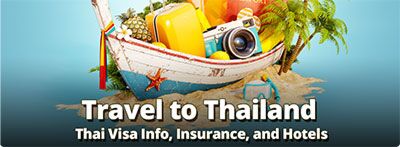
Recommended Documents for Travel to Thailand in 2024
Please have the following documents ready.
- Passport with at least six month validity
- Visa or visa exemption qualification
- Buy Thailand Travel Insurance RECOMMENDED
- Boarding pass to be presented at Passport Control
- Hotel booking confirmation if asked by the Immigration Officer
- Note: Vaccination record no longer required
Incorrect documents will delay the entry screening by rules from the Thai immigration bureau and its Thai immigration officials.
Buy Your Insurance Now
Latest News as of April 25, 2024
- For up-to-date information and weekly updates regarding current Thailand travel restrictions, please visit the Weekly Updates for Thailand Travel Restrictions .
- As of October 1, 2022, Thailand will no longer have COVID entry requirements. Please exercise normal precautions as necessary when visiting Thailand.
- Buy your Travel Insurance now at AXA Thailand .
- Book your hotel in Thailand at Agoda.com
- Travelers may join our Facebook Group to ask questions, get help, and read the latest developments: https://www.facebook.com/groups/howtoenterthailand
Travel to Thailand
Travelers may enter Thailand with or without vaccination. Vaccination is not required.
No phone app for reporting or tracking is required.
No need to show proof of any vaccination or insurance coverage.
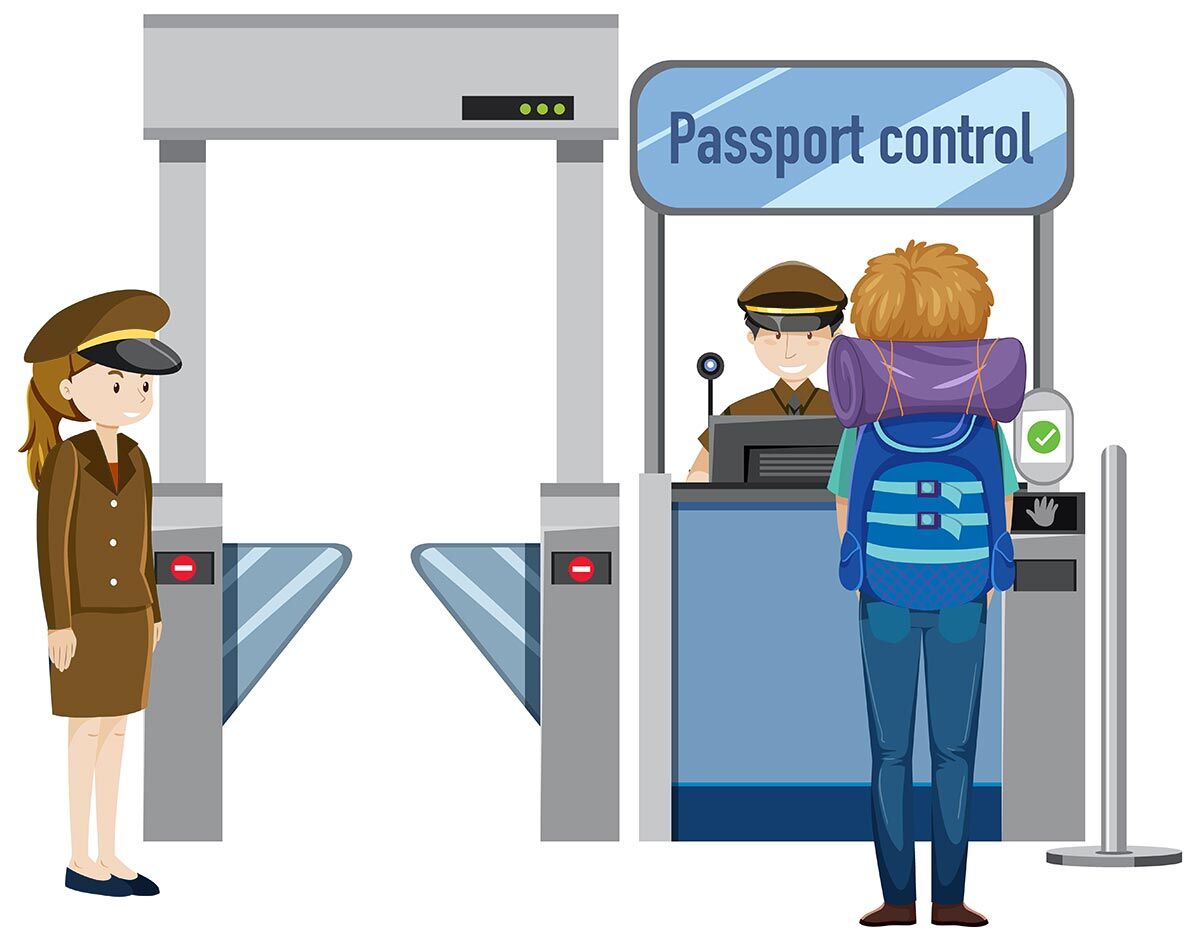
Entry and Exit Requirements
Each country or territory determines its own entry and exit requirements at its borders. If you fail to meet these requirements for your destination, your embassy will not be able to assist you. The following information is provided by Thai authorities and is subject to change without notice.
The entry prerequisites differ based on the passport type you are holding for travel.
Prior to your journey, consult with your travel carrier regarding passport stipulations, as their validity rules might be stricter than those mandated by the destination country.
Ensure that your passport has at least six months of validity remaining upon your arrival in Thailand.
Other Entry Requirements
Immigration officers at the Thai border may request to see a ticket for your return or onward journey, as well as evidence of adequate funds to sustain you throughout your visit. Failure to present these documents may result in denial of entry.
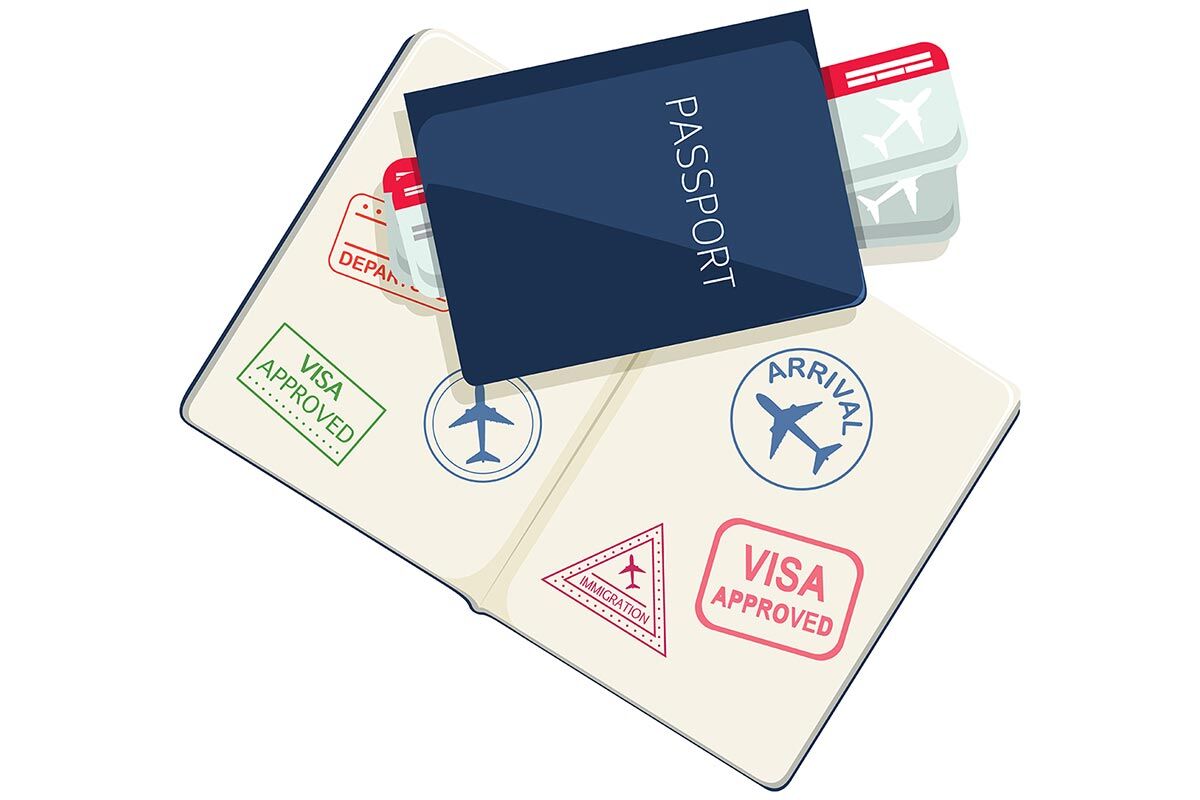
Entry Stamp
Obtain your entry stamp directly from an immigration officer when entering Thailand. Avoid acquiring your visa, visa extension, or entry stamp through visa shops or travel agents within the country.
Passports that have been modified or carry fake visas and entry/exit stamps will be considered invalid. Individuals caught with such passports may face imprisonment, fines, and deportation, and might also be barred from future entry into Thailand.
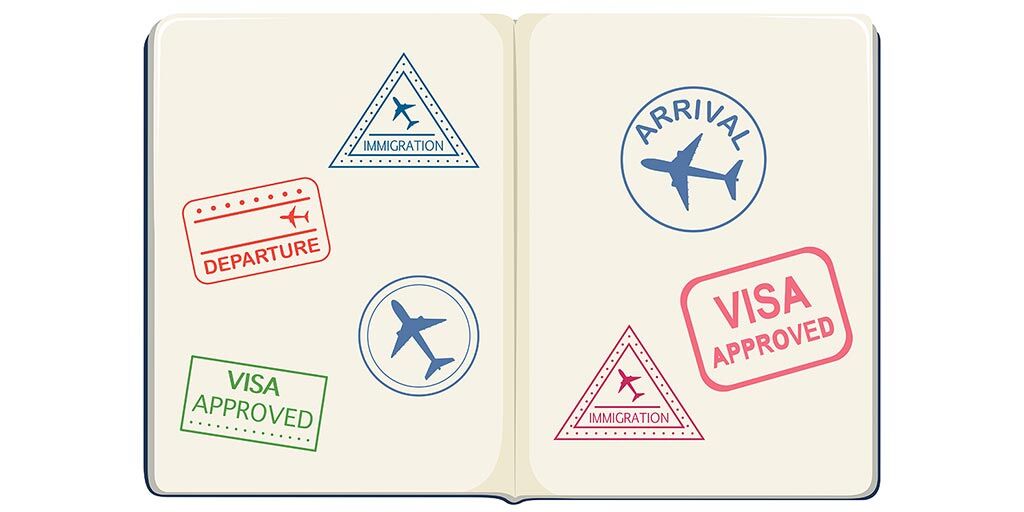
Do You Need a Visa to Enter Thailand?
Visitors from countries under the Visa Exemption List are not required to obtain a Thai visa in order to travel to Thailand for tourism purposes. The Thai Immigration Bureau will allow foreigners to stay in Thailand for 30 days. Tourists will be able to apply for a 30-day visa extension at any local immigration office in Thailand.
If you wish to stay longer or are traveling for a purpose other than tourism, please know that the normal 60-day Tourist Visa Thailand , Thailand LTR Visa , Thai Elite Visa , and other non-immigrant visas are available at Thai Embassies or Consulates around the world.
Are you a high net worth individual who wants to stay in Thailand for 5, 10, or 20 years? You may consider joining the exclusive Thailand Elite Visa membership program. It is an easy-to-apply and hassle-free visa application for your long-term stay in Thailand. For more information about the Thailand Elite Visa Program, you can start visa application, you can start today: https://www.thaiembassy.com/thailand-visa/thai-elite-visa
Thailand Pass is no longer in effect
As of July 1, 2022, Thailand Pass is no longer required for foreign travelers entering Thailand.
Vaccinated travelers do not need to provide proof of vaccination before arriving. Unvaccinated travelers are also under no restrictions and can freely travel to Thailand.
Thailand Travel Insurance for Foreigners

It is recommended for foreigners traveling to Thailand to have a travel insurance policy before departing to Thailand. This is for their protection during the course of their trip to Thailand.
Having a reliable travel insurance policy that covers disruptions protects the investment you’ve made so you can feel secure and covered while enjoying what Thailand has to offer. Purchasing this travel insurance protection is affordable and worth not paying the hospital bill out of your own pocket. The average travel insurance cost for a trip to Thailand is only around $50 to $100.
Purchasing a protection is affordable than paying the hospital bill out from your pocket. The average travel insurance cost for a trip to Thailand is only around $100 to $150.
Foreigners can get a Thailand travel insurance policy easily and conveniently. Visitors can buy travel insurance online with a credit card and the insurance policy and COVID-19 certificate will be sent to you instantly.
Purchase your Thailand Travel Insurance for foreigners HERE .

Flights to Thailand Have Resumed
Regarding flights to Thailand, the normal commercial passenger flights are operating as normal. Before booking flights to Thailand, travelers should ensure that they study the different categories of visas granted to foreign nationals at this time to determine the possibility of travel.
Check within your country’s state department for travel advisories during COVID-19.
No Quarantine Required
Traveling to Thailand has no restrictions at this time.
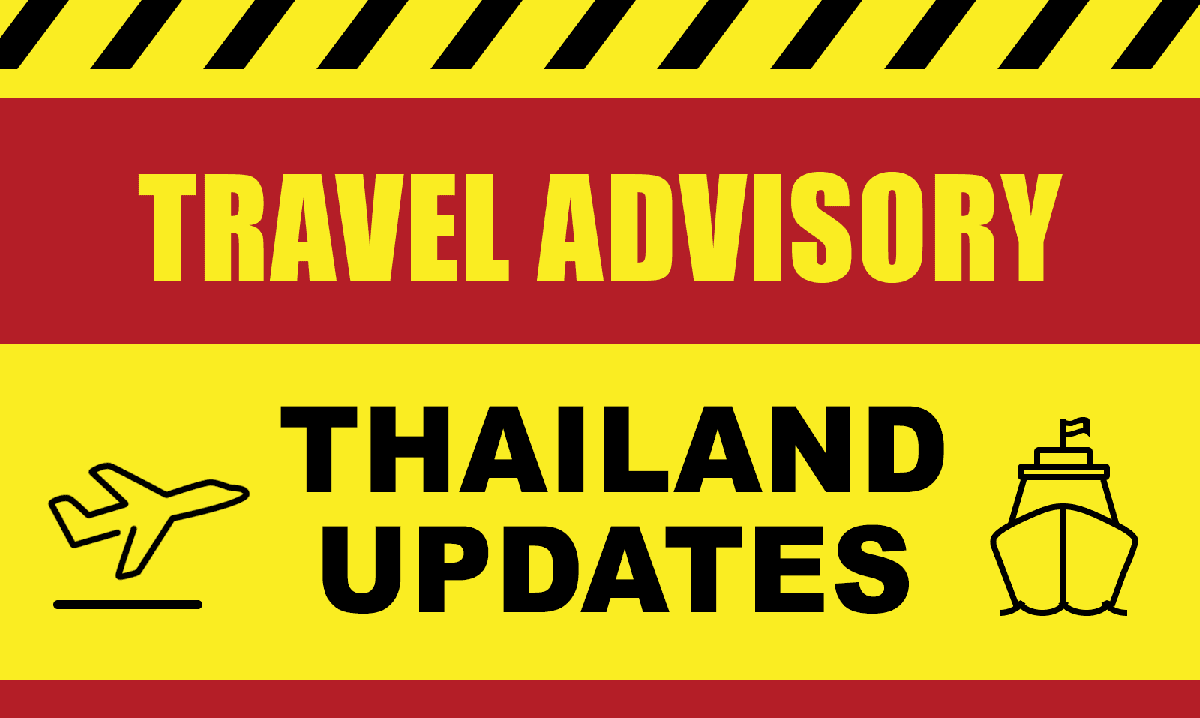
Travel Advisory for Thailand
Tourism is vital to the economy of Thailand. The Thai government has reopened the Kingdom of Thailand to foreign visitors during the COVID-19 pandemic without restriction.
It is important to review news about fast-changing developments within the country before you make travel plans. Information is available on this website, Tourism Authority of Thailand, and on government sites listed below.
Please research your destination of travel and its travel advisory so you have a pleasant experience for your stay in Thailand.
- Bangkok: No restrictions
- Pattaya: No restrictions
- Phuket: No restrictions
- Koh Samui: No restrictions
- Chiang Mai: No restrictions
- Hua Hin: No restrictions
List of Countries that may allow Travel to Thailand (Check with your Embassy for Travel Advisory):
- United States citizens should check with the US Department of State for any travel advisory, news, and emergency situations on their website for Thailand Travel Advisory .
- United Kingdom citizens can check for travel restrictions and news on the FDCO website for Foreign Travel Advice Thailand .
There are no travel requirements and restrictions in place at this time for foreigners entering Thailand.
We recommend contacting your local Thai embassy or consulate before making any plans or reservations. You may also leave your questions in the comment section.
Still have questions?
Visit our Facebook Group and read questions from fellow travelers to Thailand or ask your own:
https://www.facebook.com/groups/howtoenterthailand
Top 20 Questions Asked this Week by Our Visitors
What is the visa exemption scheme.
Thailand has a Visa Exemption Scheme that allows nationals from certain countries to enter Thailand for tourism purposes without a visa. Visitors under this scheme will be granted a stay of a specific duration, typically 30 days, but this may vary based on the traveler’s nationality and the current regulations in place.
Where can I apply for a tourist visa for Thailand?
You can apply for a Thai tourist visa at a Royal Thai Embassy or Consulate in your home country or in a third country.
Below are the general steps involved, but note that processes may vary slightly at different embassies or consulates:
Steps to Apply for a Thai Tourist Visa:
In Person or by Mail
- Find the Nearest Thai Embassy or Consulate: Look for a Royal Thai Embassy or Consulate in your country of residence or a neighboring country. You can usually find this information on the Thai Ministry of Foreign Affairs’ official website or by conducting a simple online search for the Thai Embassy and Consulate near me.
- Prepare Required Documents: Typically, you will need your passport (with at least six months’ validity), completed visa application form, passport-size photographs, proof of travel arrangements (like flight and hotel bookings), and evidence of financial means.
- Submit Application: You may need to submit your visa application and required documents in person, although some embassies or consulates may offer online submission or postal services. Be sure to check the specific submission guidelines for the embassy or consulate where you’re applying.
- Pay Visa Fee: There will usually be a non-refundable visa application fee, which can vary by location and visa type. Payment methods can also differ, so verify this in advance.
- Wait for Processing: Visa processing times can vary. Some applications are processed in a few days, while others may take weeks. Check the estimated processing time and plan accordingly.
- Receive Visa: Once approved, you’ll receive your visa, which will be stamped or affixed to a page in your passport. Carefully review the visa to confirm that all information is accurate and understand the terms of your stay.
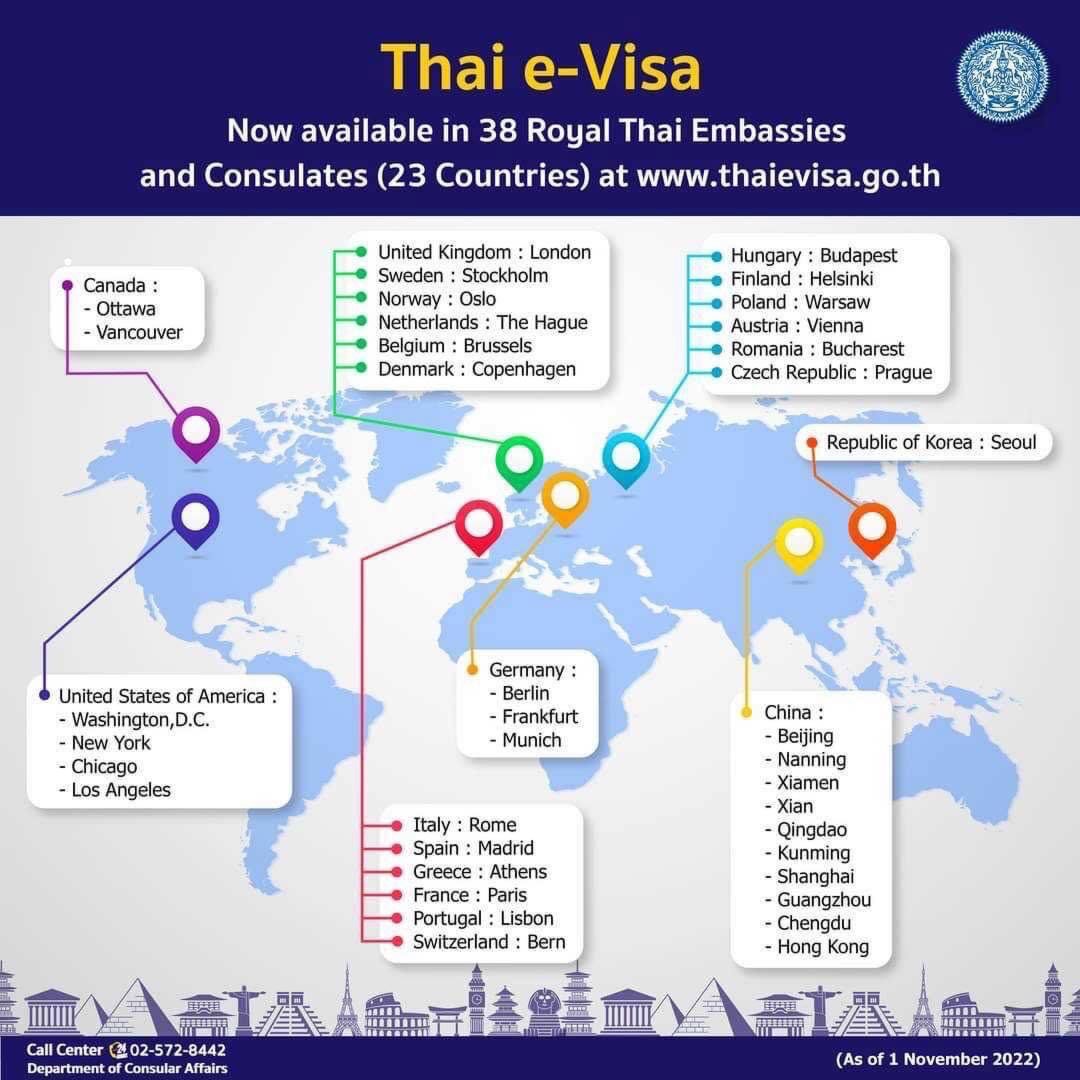
Are there any restrictions on tourists coming to Thailand?
Travel restrictions and requirements for entering Thailand can change frequently due to the ongoing global situation with the COVID-19 pandemic, and other factors that might influence travel policies. The information provided here might be outdated, so it is imperative that you check the most current and relevant travel advisories and updates.
Here are some general restrictions and requirements for tourists entering Thailand.
General Entry Requirements:
- Visa Requirements: Depending on your nationality, you may need a visa to enter Thailand. Some nationals can enter under the Visa Exemption Scheme, while others might need to apply for a visa in advance.
- Valid Passport: A passport with at least six months of remaining validity is typically required.
- Proof of Funds: You might need to demonstrate that you have sufficient funds to support yourself during your stay.
- Onward or Return Ticket: Some travelers may need to show a confirmed ticket for return or onward travel.
Additional Restrictions:
- Travel advisories and restrictions can also depend on the ongoing global and local situation, such as public health concerns, security issues, or other emergencies.
How do I buy an ATK test?
You can also purchase an ATK self-test from pharmacies and 7-11’s in Thailand. They cost between 50-150 Thai baht. ATK testing is optional and not required by the Thai government.
Is Thai Airways operating normal flights in and out of Thailand?
Are masks required to be worn in thailand.
No. You will see many Thai people wearing masks for public health protection.
Is COVID-19 treatment and medicine available to foreigners?
Yes, you may visit any clinic or hospital in Thailand for treatment of COVID-19. Please exercise normal precautions while traveling to obtain treatment if infected or use telemedicine so you can stay safely in your accommodations.
Visitors insured with AXA Travel Insurance will have full coverage for COVID-19 medical treatment. AXA is the most popular Thailand Travel Insurance for foreign travelers.
What is the best time of year to travel to Thailand?
November to February is the best time of year to visit Thailand as it is during the cool season. Thailand has become extremely hot in recent years during the months of April and May.
What activities can you do in Thailand?
- Island hopping
- Scuba diving
- Boat ride in the Andaman sea
- Eat delicious food
- Savory and Tasty Thai foods
What is the best way to find hotels?
You can find listings for hotels in all areas at Agoda .
When is the low season for travel to Thailand?
April to May are the hot season. July to September is the rainy period during the year. These months are the low season.
Are there any restrictions for foreign passport holders?
Travel restrictions and requirements for foreign passport holders entering Thailand can vary widely based on a number of factors, including the traveler’s nationality, the purpose of the visit, the duration of the stay, and the current global and local health situation.
General Entry Restrictions:
- Visa Regulations: Visa policies vary, with some passport holders eligible for visa exemption, visa-on-arrival, or e-visas, while others must secure visas in advance.
- Passport Validity: A minimum passport validity, often six months, is a standard requirement.
- Financial Proof: Travelers might need to demonstrate they possess adequate funds for their stay.
- Return or Onward Ticket: A confirmed ticket for onward or return travel may be necessary.
- Travel History: Entry restrictions might apply based on recent travel history, including visits to specific countries or regions.
Specific Passport-Based Restrictions:
- Diplomatic/Official Passports: Holders of diplomatic or official passports may face different entry requirements or procedures.
- Restricted Nationalities: Some countries impose entry limitations or additional requirements on passport holders from specific nations due to diplomatic relations or security concerns.
Additional Checks and Requirements:
- Security and Background Checks: Security considerations can lead to additional screening, requirements, or restrictions for travelers from certain countries.
Can I rent a private car/taxi from the airport to the hotel?
Yes. travelers can find metered taxis available outside of the airport. All request the use of the meter. Private cars and car hire are also available at the airport counters. Grab is now available at both international airports in Bangkok.
Does the hotel provide transportation?
Hotels charge an additional fee for transportation to and from the airport. The easiest transportation is the metered taxi or on your Grab app.
What is the best way to exchange currency?
If you need money exchanged to use for transportation it is best to do it once outside the Customs area.
The best exchange rates for Thai currency can be found in tourist areas with popular exchange services such as SuperRich or Dee Money.
What insurance should I get?
The most popular insurance coverage is THB 750,000 coverage for medical expenses due to accidents and illnesses (including COVID-19) and THB 1 million for accidental death and disability. You can find trusted insurance coverage at AXA Thailand .
In case of an accident or sickness during the policy period which requires you to receive continued treatment in the hospital, AXA will cover until:
- For inpatient: You are discharged from hospital
- For outpatient: Policy expiry date
What happens after I get my AXA Insurance policy?
After applying for your AXA Insurance, you will receive an email with your policy. You can then upload the policy on your phone for easy reference.
City Travel Guide
- How to Travel to Bangkok
- How to Travel to Phuket
- How to Travel to Pattaya
- How to Travel to Chiang Mai
- How to Travel to Samui
- How to Travel to Hua Hin
Other Thai Elite Visa Pages
Related posts.

How to Travel to Thailand in 2024

Best Places to Retire in Thailand for Couples

How to Retire in Thailand for Couples

Thailand Travel Restrictions 2023
Leave a comment cancel reply.
Your email address will not be published. Required fields are marked *
This form collects your name, email and content so that we can keep track of the comments placed on the website. By submitting this form, you accepted and agreed on our privacy policy and terms .
588 Comments
Just to make totally sure, I’m gonna ask this very simply: I have no vaccination papers. I have no negative Covid test. I have no travel insurance. Am I still allowed to enter Thailand?
Hello, Lars Andersen.
Unless you are from one of the countries with yellow fever, you do not need to provide vaccination papers and are allowed to enter Thailand.
How much cash in gbp can I bring into Thailand (phuket) for spending money etc?
I would like to ask if I am holding an Indian passport with valid Australian tourist visa, do I need a tourist visa? or can I enter Thailand on the basis of my valid Australian visa?
Also if Nepalese passport holder has valid Australian student visa, do they need to apply tourist visa?
Hello, Chandar Parkas Dimri.
You cannot enter Thailand with any Australian visa. You will need to apply for a Thailand Tourist Visa to enter Thailand. If you’re coming to Thailand to study, you will need to apply for an Education Visa.
I have got a question regarding the updated guidelines as of January 9, 2023
>Airline passengers 18 years old or older must provide proof of full vaccination
I have full vaccination, but it was done in October 2021, do I need to get a new vaccine?

Yes, that is acceptable. You do not need to get a new vaccine. Thank you.
Hi there, we are looking at coming to Thailand for over 30 days but in 2 stints. We will be doing Bangkok and the north followed by the south a few month later. What kind of VISA do you recommend for this?
You can use the 45 days Visa Exemption stamp on each visit. There is no need to get a visa. Please check this information on this page: https://www.thaiembassy.com/weekly-updates/thailand-travel-restrictions-for-november-2022
We will travel Thailand this Monday..
What are the needed requirements?
Dear Marfele,
You may find the entry requirements here: https://www.thaiembassy.com/weekly-updates/thailand-entry-requirements-for-october-2022 Thank you.
If you are vaccinated and Travel to Thailand without PCR testing before leaving SA do you still need to do PCR when you arrive in Thailand but you are fully vaccinated?
Dear Deidre,
The latest entry requirements are posted here: https://www.thaiembassy.com/weekly-updates/thailand-entry-requirements-for-october-2022
Hi, is there a restriction to travel to Phuket from Malaysia by train? (Travelling from Malaysia to Padang Besar Train Station to Hat Yai Train Station to Phuket train terminal 2). Thanks a lot

Dear Oscar,
For this month, just prepare your vaccination card and passport. On October 1st, restriction will be removed.
For more information about travel to Thailand, please check this link: https://www.siam-legal.com/legal-guide/how-to-enter-thailand-2022-guide.pdf
Hi, I’ve read in some of your news that all corona rules fall away from 1 October, that we can travel into the country without having to show a test or certificate. is that right ? Vikram
Dear Vikram,
Yes. Official statement will be announce by the Gazette on October 1st.
For more information about travel to Thailand, please check this link: https://www.thaiembassy.com/weekly-updates/thailand-entry-requirements-for-october-2022
Hello . It says on some Thai websites that from 1 October no one needs a negative test or to show a corona certificate on arrival in Thailand. Is that right ? We will arrive on 1 October in Phuket. Should I be tested as I am not vaccinated?
Dear Albina,
On October 1st, restriction will be removed.
Hello. Should children aged 2 have a negative test ? Up to what age should children have a test ?
If the parents are unvaccinated, children will require too.
Hello again. Is it okay with an Antigen test taken at the hospital or do we have to take only PCR
Yes, It should be professional RAT.
Yordmanu, I have a current, one year ‘retirement’ visa extension and have just returned to UK after a 90 day Thailand Pass trip. I’ve booked a one-way flight back to Thailand for the 9th. November – Will I have to buy insurance & will I be allowed to travel back to Thailand on this one-way ticket? I have an a Thailand address (30 year lease) and a history of travellng back & forth. Peter
Dear Peter,
Insurance is now an optional. It’s not compulsory but still recommended.
Hello. We will travel to Phuket on 1 October. My husband has a dose of vaccine and has been infected with covid twice. Does he have to prove a negative test or does he have to have proof from the doctor that he has had covid twice and has a vaccine? I am not vaccinated but have undergone covid 2 times the children aged 14 and 11 have not been vaccinated, should they have a test before we arrive? Albina
If fully vaccinated, just vaccination certificate and certificate of recovery since he got infected.
For unvaccinated, you need to have negative RT PCR within 72 hours of your arrival. Same procedure with your kids.
I am a Thailand passport holder and returning to Chiang Mai from Kuala Lumpur. What requirements do I need to enter Thailand?
Passport and proof of vaccination.
Do you know the phone number of the Thai embassy in Thailand?
hi, i have 1 question. how about unvaccinated kids age 8-year-old and 4++-year-old?do they need to do pcr test?
If you are fully vaccinated , No. If unvaccinated, same procedure with parents.
I’m seeing conflicting info. Some websites say yes or no, regarding that before departing to thailand, one must show a negative pcr test. For the most part, it seems like no, you don’t have to.. but then more reputable sites say yes, people need to.
so which is it? planning to depart in october of 2022
Dear Balrto,
Negative RT PCR is for those unvaccinated.
Is a “supervised RAT travel test” signed and witnessed by a pharmacist in Australia permitted for entry to Thailand?
Dear Nathan,
Yes, it should be a professional RAT.
Me and my friends will fly to Phuket. Me and my husband have international certificate of vaccination without QR-code on Covid-19. Vaccine is comirnaty (we have two dose and booster) . On website: https://www.tatnews.org/2022/06/covid-19-vaccine-guide-for-travellers-to-thailand/ The information is that when vaccine comirnaty, the 2nd dose must be after 3 weeks, but in my and husband’s certificate is after 4 weeks (first – 19.05.2022, second – 16.06.2022 and booster is 22.01.2022). Is this a problem? Do we need to take a test? Thx You in advance.
No, it means 3 weeks after your shot, more than 21 days in valid.
Do I need to purchase health insurance if I’m only staying in Bangkok for 1 day since my destination is the following day when I arrived in Bandkok?
Insurance is optional. Not compulsory but still recommended.
do the vaccine certificates require to have a qr code? or is that up to the discretion of the airline?
Not really, any proof that you are fully vaccinated will be accepted. If so, then maybe it’s the airlines requirements.
i will arrive bangkok 17:00, transit to Taipei, Taiwan 12:55 on next day. do i still need to book hotel + insurance and proceed PCR test. I am unvaccinated.
Insurance is not compulsory but still recommended. If you are unvaccinated, you need a 72 hours negative RT PCR.
I have flight 06.10 I’m arrive g to Thailand 07.10. I’m not vaccined is that mean I have to take test 04.10 then is 72h before my arrival or I shuld take tests 05.10 or 06.10?
You can do it on 5.10 , validity should be 72 hours upon arrival.
Hello, I might be coming to Thailand in the next month or so, coming from China (not a Chinese citizen). I have been vaccinated but my vaccination shows on my phone – is this presentable?
Hi Charles,
Any proof that you are fully vaccinated.
How long is the Vaccine considered before expiring if I am vaccinated with 2 shots?
Last shot should be not more than 12 months.
Traditional herbal medicines are based on the use of natural remedies like Herbs and Roots, no special food, no lifestyle change to permanently cure drug resistance diseases. people who use this methods like me will definitely testify. three years ago I was permanently cured from herpes simplex virus by Dr Okosun, an African herbalist who eradicates diseases and viruses which the world believes has no cure today with the use of herbs Dr Okosun herbs are hundred percent natural, no after effect and is guaranteed method of getting rid of herpes and other drug resistance diseases which the doctors made us believe has no cure, im one of the hundreds of people cured by dr okosun and you can get in touch with this dr and get your healing just as i did via drokosun55@gmail .com his mobile or whatsapp +2348124363791
Is a photo copy or a photo of my covid card ok? I left my original at home so I wouldn’t lose it.
Yes, any proof that you are fully vaccinated.
On your website it says that the test should be done with 72 hours before departure. So is it before departure or arrival? A international flight might take More 30 hours. If there is a delay, 72 hours will easily be passed. If the test is invalid upon arrival, what should be done?
Validity should be within 72 hours of arrival.
I receive my PCR test result by email. Do I need to print it out to show upon arrival? If my result is expired upon arrival, can I do a pcr test I the airport? If so, how much is it?
The result should be valid within 72 hours of your arrival, incase you need to repeat again the test.
I was just reading a site through Japan Airlines for Thailand entry from United States, it says as of August 31 1. no test required 2. No quarantine
Is this correct?
Thank you Jim
Yes you’re right, no test required if fully vaccinated. If unvaccinated, 72 hours negative RT PCR.
If I’m unvaccinated I understand that I need to have RT PCR within 72 hours upon arrival, but do I also HAVE to quarantine upon arrival in addition to the test?
No quarantine upon arrival if you have negative result.
I have 2 doses of pfizer is it considered fully vaccinated? I got my 2nd shot last Oct. 2021 and I will be travelling on Aug.3. Do I need to show RT-PCR negative result ?
Yes, 2 doses is fully vaccinated.
I know that for the moment i can enter with test but what are the chances that the thai government will change the rules and make the vaccination obligatory again for 5 octobre? thanks
i am not vaccinated but i will be travelling to thailand on 5 october.
Do I only need a negative covid test to enter thailand?
And what are the chances that the thai government will change the rules and make the vaccination obligatory again? If so, how long before I should be vaccinated in order to travel safely on the 5th of october?
Yes, you can still enter even unvaccinated. You just need to have RT PCR within 72 hours upon arrival.
Hi there, just wondering if transiting in Bangkok (not leaving the airport) on the way to Malaysia if I still need to provide a RT/PCR test? I am not vaccinated. Thanks in advance
The unvaccinated or not fully vaccinated travellers without a negative test result within 72 hours of travel is required to follow the public health instructions and guidelines as deemed appropriate by the Health Control officer at the point of arrival.
A little urgent!
Hi! I am have 2 doses of pfizer vaccine but it has expired 2 months ago, I have read that i am still able to travel in there as thailand do not request for the booster.
Is that correct? Hope someone replies me fast. Thank you ser/madam!
Yes, 2 doses is fully vaccinated . Your last shot should not be longer than 12 months, otherwise, you need to get booster.
We are arriving in BKK on the 29th and are not vaccinated or recovered.
I would like to know if we can get vaccinated this week. Is the vaccine already valid or is it necessary, for example, to be vaccinated since 20 days minimum for the vaccine to be valid in Thailand?
Have a good day
Hi Grandjean,
14 days of your vaccination.
You do not need to be vaccinated to go to Thailand. Just take an official antigen test 72 hours before departure.
Hi, for the insurance policy how many days should I buy if I will be staying in thailand for 5 days?
You can get the period of your stay or even 1 week.
How long do we have to be vaccinated for the Covid certificate to be valid?
Not more than 12 months with your last shot. If so, you can get booster.
Hi, thank you for your work. So unvaccinated travelers who got Covid recently in a month can submit a recovery certificate instead of a negative test result to enter Thailand. Is that right that I understand? or must submit a negative test result even though got Covid recently? Also, what is the acceptable date for a recent recovery? Is it 30 days or 40days?
If you recovered at covid, you need to get certificate of recovery . You still need to get a 72 hours negative RT PCR if you are unvaccinated, that is the requirements for unvaccinated traveler.
Hi!. I’m travelling from the UK to BKK on 30th Aug., 2022. I’m over 60 and had both my vaccination jabs plus a booster shot back in 2021. Is there anything else I need to enter Thailand?. 😀
Just vaccination certificate and passport.
hi iam travelling to Thailand from Kuwait will transit in Bangkok then internal flight to koh samui for 12 days then to Phuket for another 12 days iam not vaccinated please advise with needed documents and when i travel from koh samui to phuket do i need to do PCR?
and it will be undergo quarantine for unvaccinated travellers?
For unvaccinated traveler, you need to have negative 72 hours RT PCR.
Nice, Now you can visit and travel in Thailand with your pocket money. But how? It is possible due to the Discount code or promo code of Travel Accommodation Services Provider, Like Klook, Trip com and so many in the Thailand. So You can get Klook Thailand Discount code from here ส่วนลด Klook and save some amount.
Yes, most hotel had their own discount and promotion, you can stay in any hotel you want. You can also check here https://www.agoda.com/search?cid=1897011&city=9395
Hi We are travelling to Phuket Airport and on to hotel in Khao Lak on 25 November from UK for 15 nights. We have had 3 Vaccinations, the latest one December 21. Do we need another one given it will be a year since the last one. What is the longest time since last vaccination to be considered fully vaccinated.
It should not last more than 12 months.
Hi i am planning to visit in thailand next year with my family for a week, do we need to get a visa? Or what are the requirements? Thank you
You can check with this site if you are eligible for visa exemption which means that you can enter Thailand without visa for 30 days. https://www.thaiembassy.com/thailand-visa/thai-visa-exemption-and-bilateral-agreement
You can check this site if you are eligible for visa exemption which means that you can enter Thailand without visa for 30 days. https://www.thaiembassy.com/thailand-visa/thai-visa-exemption-and-bilateral-agreement
Hi, i am traveling to Bangkok 29th of august. I got world travel insurance her in Danmark, please let me know if need to buy any extra insurance. I am fully vaccinated. thanks
Hi Maqsood,
Insurance is not compulsory but highly suggested.
Hi, I am unvaccinated and got Covid 2 weeks ago and gonna visit Thailand in 14days. In this case, recovery certificate can be submitted instead of negative results from ATK or PCR test? Because dead covid virus can be left in the body and some people got still positive results after they got covid. I will flight from Korea.
Yes, bring your certificate of recovery.
Thank you. So do you mean that I can submit a recovery certificate in recent instead of the negative test result? Is that right that I understand?
You need to bring the certificate of you recovery so the health representative can check the level status of your infection just incase you get positive result again.
hi is a booster covid19 vaccine mandatory to enter Thailand? I’m vaccinated with 1 J&J last Aug 2021 which only needs 1 shot. would this be an issue?
Hello Vans,
If you’re fully vaccinated, you must show proof of vaccination a booster isn’t required for entry at this stage.
thank you mary for this.
I need to transit from BKK to Mumbai in 5 hours gap .Unfortunately,I can’t get thorough check in because I bought different airlines.So,I need to pass the immigration of Thuwaanabumi Air port and collect my luggage and again I need to entry into Department of that airport.Is it ok for me because I will re entry into BKK after 4 days.My trip is tomorrow.
Hi. If i’m travelling with my family from malaysia to thailand and one of my child 12 yr old is not vaccine can my child enter thailand together with us ( already complete vaccine . do she need to perform atk ?
Hello Saiful,
Children under the age of 18 do not need a certificate of vaccination if they are travelling with fully vaccinated parents. If they travel with parents who are not fully vaccinated, they must present an RT-PCR / Professional ATK COVID-19 test result issued within 72 hours before departure.
Im fully vaccinated , do i still need to stay at a SHAplus hotel when i visit thailand?
You can enter in any hotel you want.
I cannot enter into Thailand within 14th days from tested positive. Correct? Thailand Embassy of Japan and Singapore informed me like that.
As long as you are fully recovered and tested negative after your quarantine period, you can able to travel in Thailand.
For those previously infected with COVID-19 are considered fully vaccinated if they have received a single dose of COVID-19 vaccine at any time after their recovery.
Please be advised that your proof or medical record of COVID-19 recovery must be shown alongside your single-dose vaccination certificate.
My daughter got covid last Sunday. I have lived in Singapore, and in SIngapore, can go out from 7th day(1st day is positive day) I have a plan to go to Thailand this Sunday. When I called and asked Thailand embassy in Japan today, embassy officer mentaioned she cannot enter Thailand within14days from positive result tested.. Also it is showing in homepage in Thailand embassy of Japan. If she with negative and doctor record , she can go in Thailand before 14days?
Hello Kato,
My daughter got covid last Sunday. I have lived in Singapore, and in SIngapore, can go out from 7th day(1st day is positive day) I have a plan to go to Thailand this Sunday. When I called and asked Thailand embassy in Japan today, embassy officer mentaioned she cannot enter Thailand within14days from positive result tested.. Also it is showing in homepage in Thailand embassy of Japan.
Hello Do i still need a test 72 hrs before departure if I have 1 of the 2 Covid vaccines and just recovered from Covid? Thank you
Hello Tash,
Hi, I’m from Malaysia. Yesterday on 1 August 2022 I tested positive for covid-19 by using the RTK-Nasal swab self-test kit. According to Ministry of Health of Malaysia, I only need to quarantine for 7 days since I have taken the 3 dos of the covid-19 vaccine. However, I am required to attend a regional meeting in Bangkok on 15 August 2022. Can I enter Bangkok on the 14 of August since we will be traveling to Bangkok 1 day earlier?
Sorry to hear that. Yes, you can still travel to Thailand as long as after you have quarantined you tested negative. And just provide your proof or medical record of COVID-19 recovery alongside of your vaccination certificate.
I am travelling to Bangkok on 10th August to visit a bank on the 11th August and departing Bangkok on 12th August for UK. I am fully vaccinated in Cambodia with 3 vaccinations. I am a British citizen. Do I require a PCR test before I enter Thailand?
Hello Robert,
Since you are fully vaccinated you don’t need a negative RT-PCR test result. Just provide your proof of vaccination upon arrival, that would be enough.
hi im planning to visit phuket and bangkok , is there a minimum days i have to spend at phuket before going to bangkok ?
Hello Bell,
There’s no minimum days you can stay on each area in Thailand, as long as your visa are still valid you are free to travel around.
I have one shot of a two-shot vaccine + a booster (in total 2 shots). The reason I only had one shot the first time is because I had been infected with COVID and therefore according to local regulations one shot was enough. Am I considered fully vaccinated for travel to Thailand?
Thank you for your prompt response. To clear out, I have proof that I was tested positive and then subsequently negative test. The report is in Italian (I live in Italy), but the words “positivo” and “negativo” are pretty clear. The tests were conducted by an accredited private hospital in Milan, Italy. I assume I would be able to use this?
If you can provide the English translation that would be better, but if you only have written in Italian you can still use that.
Hi there, I am from UK. I plan to visit Thailand in mid of August 2022 with my 12 years old son. I had 3 Covid Vaccines but my son hasn’t receive them yet. Does my son need to do Fit to Fly Pro-Antigen Covid test or he doesn’t need to do it? Hope to hear from you soon. Thank you.
Hello Tidaratt,
Will I be able to enter Thailand with the negative result of PCR Test 72 hrs? The lab has the PCR Test. They said the PCR Test and the RT-PCR Test is the same thing.
Hello Usanee,
The RT-PCR test and PCR test are different, however, any of those are accepted as long as it was issued by a certified Clinic or Hospital, containing personal information of the travelers and information of the vaccine (name, batch number, dates).
I have an appointment with Medical facility in Bangkok, for yearly medical checkups at the end of August 2020. I have already took COVID 19 full vaccination (1st, 2nd and booster). My visa will stamped on arrival at the air port since my country is not in the list Thai visa except countries. So what else required from?
Hello Assefa,
The entry measures for Thai and Foreign Nationals are only proof of either a certificate of vaccination or a negative RT-PCR or professional ATK test result within 72 hours of travel. These can be in a print or digital format.
I am from Kuwait, I am a two-dose restaurant and I have health insurance. Do I need anything else to enter Thailand?
Hello Nael,
Hi, may I know what’s the procedure if foreigners get COVID during their stay in Thailand?
Anyone who tests positive, regardless of whether they have recovered from COVID-19 in the last 90 days, are required to quarantine at their own expense for 10-14 days or possibly longer depending on their situation and under the direction of public health officials.
Hi, do you need to be vaccinated to enter Thailand? Or is a PCR test acceptable when taken 3 days before arriving?
Hello Eliana,
Full vaccination is not mandatory to enter Thailand, however, if you provide your proof of vaccination, you won’t need to present a negative PCR test.
A negative RT-PCR or professional ATK test result must be issued within 72 hours before departure.
I need to make a trip to Thailand in early October for business meetings with our local office as well as clients in Bangkok. Since the trip is not for tourism purposes, do I need to get a visa (U.S. passport holder traveling from the U.S.)
Hello Dawn,
If you’ll stay less than 30 days in Thailand, you don’t need to apply for a visa since U.S Passport holders are entitled for 30 days visa exemption.
Hi. I m planning to travel to Thailand in September/October. I have 2 sinovac shots that are confirmed in a local covid19 vaccination card in English incl. Batch numbers etc but I don’t have the yellow WHO vaccination certificate booklet. Is my local certificate valid or do I need the yellow WHO booklet? Thanks a lot and kind regards Thomas
Hello Thomas,
You don’t need a yellow booklet, just provide the proof of your vaccination given by your country.
Hi , I am planning to travel to Thailand in October for 1 week . I have received the Johnson and Johnson single dose covid vaccine. Do I have to get a booster shot to or am I considered vaccinated
Hello Naomi,
Travelers to Thailand, foreign and Thai, are considered fully vaccinated if they get their second dose of a 2-dose vaccine no less than 14 days before their travel date to Thailand also if they get a single-dose vaccine no less than 14 days before their travel date to Thailand.
Hi I am a U.K. citizen I am fully vaccinated plus had a 3 rd booster jab in December 2021 , I am planing to go to thailand in October 2022 , for 2 weeks am I considered fully vaccinated or would I need a 4 th booster vaccination Thanks in advance
Hello Eddie,
Travelers to Thailand are considered fully vaccinated if they have already a 2-dose of vaccine.
May I ask Children under 18 without vaccinated who are traveling with vaccinated parents can enter to Thailand?
Yes they can. Thailand has no COVID restrictions anymore.
Dear, I am French citizen, I plan to come from 08/08 to Thailand: – Do I need visa or there is a 30 days exemption for French citizen ? – In case there is a Visa exemption, do I need to register somewhere or I just need to show up at the customs ? Thank you
Hello Quentin,
France Passport holders not required to obtain a visa when entering Thailand for tourism purposes and will be permitted to stay in Thailand for a period not exceeding 30 days on each visit. The visa will be stamp by the Immigration officer on the day you have arrived in Thailand.
Hi Quentin,
Check here if you are eligible for visa exemption, https://www.thaiembassy.com/thailand-visa/thai-visa-exemption-and-bilateral-agreement
Do you have to book a SHA hotel on first night if your already vaccinated?
Hello Timmy,
If you are fully vaccinated, you don’t need a hotel booking confirmation just provide a proof of your vaccination.
You can stay in any hotel of you choice.
Hi I am fully vaccinated 2 dose with moderna But it is 1 year ago already since I got my second dose. I do not have booster. Do I need booster to enter Thailand now?
Yes, last shot should not more than 12 months.
I am considering booking an airbnb in Phuket but have concerns about legality. I am seeing mix reviews online stating that it is illegal to book villas in Thailand for less than 30 days. Can you please clarify if it will be legal to book a villa in Phuket for 5 days or less. The villa is listed on Airbnb website.
https://www.airbnb.com/rooms/43272871?adults=6&children=0&infants=0&check_in=2023-05-20&check_out=2023-05-23&source_impression_id=p3_1658235414_A4%2B4qyfIvFCIfYDo
Dear Rochelle,
When you come to Thailand, you are allowed to stay in a hotel, hostel, villa or private residence such as house or condo. Thank you.
I live in HK and will have a flight to Australia and transit in Thailand. I am not vaccinated. Do i have to do test? Thank you
Yes, for unvaccinated you need 72 hours RT PCR .
Hi, Do I still have to fill up and get the Thai Pass and purchase USD10,000 covid coverage as of today 19 July 2022? Fyi, I am from Malaysia.
Thailand Pass was no longer required, no need to apply. Insurance is not compulsory but highly recommended, better to get for security.
Is 2time vaccination sinovac aprroved in Thailand ?
- Travel Clinic
- Health Checks & Blood Tests
- Family Health
- Sexual Health
- Aesthetic Clinics
- Occupational Health
- Pricing List
- Login / Register
- Online Booking

Find a Clinic
- MK test Home
- Travel vaccinations >
Travel Vaccinations for Thailand
Vaccinations, certificate requirements.
If you arrive from a yellow fever country you may need a yellow fever certificate.
How much will it cost?
Recommended for all travellers.
The vaccines in this section are recommended for all travellers visiting the country.
The tetanus vaccine - or a booster - is recommended for all travellers who are planning to visit a country where access to medical assistance may be limited. You can get tetanus when tetanus bacteria get into your bloodstream, usually due to injury or a wound. You need a booster if your last tetanus jab was over ten years ago.
Why do I need a consultation?
It is difficult to say which vaccines you need without asking a medical professional. Your itinerary, your medical history and the activities you have planned all affect which vaccinations you need. It is important that a trained travel nurse or pharmacist checks what you need.
Exactly the travel vaccinations you need - no more, no less.
During your consultation, our nurse or pharmacist will talk you through the health risks at your travel destinations to check which vaccines you need. If a vaccine is not essential, we will explain your options so you can decide whether you would like to have it.
Malaria is a serious and sometimes fatal disease transmitted by mosquitoes. You cannot be vaccinated against malaria.
Malaria Precautions
Thailand is a malaria region. Malaria primarily affects forested areas near the borders but it also affects Surat Thani province and parts of the southern border with Malaysia.The risk in most cities is classed as low to no risk.The nurse or pharmacist will assess whether you need malaria tablets based on your travel itinerary. You need to practise insect bite avoidance in all areas.The recommended malaria tablets for travellers going to risk areas in Thailand are Malarone and Doxycycline.
Find your nearest clinic
Check which of our 60+ clinics is closest to you

View all clinics
How it works
1 book an appointment.
Book online or call our booking line. Our lines are open every day!
2 Attend Consultation
During your appointment, the nurse or pharmacist will assess which vaccines or medications you need.
3 Get your treatment
Once our health advisor has assessed your needs, you'll receive your vaccinations & treatments straight away.
How it Works
Book an appointment online, attend your consultation, get your treatment, what our customers think, popular destinations, south africa.
Cookies on GOV.UK
We use some essential cookies to make this website work.
We’d like to set additional cookies to understand how you use GOV.UK, remember your settings and improve government services.
We also use cookies set by other sites to help us deliver content from their services.
You have accepted additional cookies. You can change your cookie settings at any time.
You have rejected additional cookies. You can change your cookie settings at any time.
- Passports, travel and living abroad
- Travel abroad
- Foreign travel advice
Entry requirements
This advice reflects the UK government’s understanding of current rules for people travelling on a full ‘British citizen’ passport from the UK, for the most common types of travel.
The authorities in Thailand set and enforce entry rules. If you’re not sure how these requirements apply to you, contact the Royal Thai Embassy in the UK.
COVID-19 rules
Countries may restrict travel or bring in rules at short notice. Check with your travel company or airline for changes.
If you test positive for COVID-19, you may need to stay where you are until you test negative. You may also need to seek treatment there.
You should also read TravelHealthPro’s general COVID-19 advice for travellers .
Travel to Thailand
If you are visiting Thailand and then travelling to a country that requires an RT-PCR test for entry, you will need to buy medical insurance that covers COVID-19 treatment before you arrive in Thailand.
Passport validity requirements
Your passport must be valid for at least 6 months from when you enter Thailand.
You could be refused entry to Thailand if your passport is damaged or has pages missing.
If you’re a dual national, to avoid problems at immigration, you must leave Thailand on the same passport you used to enter.
If you need to renew or apply for a new British passport, see overseas British passport applications .
Visa requirements
British passport holders arriving by air or land can enter Thailand for 30 days without a visa (visa exemption).
If you intend to stay longer (for work, study or other reasons) you need a visa before you travel.
For more information on visas or entry requirements, contact the Royal Thai Embassy or local Immigration Office.
Overstaying your visa
If you stay beyond the period of your visa, you will be fined 500 Thai baht a day up to a maximum of 20,000 baht. You risk being:
- held in detention
- deported at your own expense
- banned from re-entering Thailand for up to 10 years
Conditions in detention centres can be harsh.
Vaccination requirements (other than COVID-19)
At least 8 weeks before your trip, check the vaccinations and certificates you need on TravelHealthPro .
Depending on your circumstances, this may include a yellow fever vaccination certificate.
Customs rules
There are strict rules about goods that can be brought into and taken out of Thailand . You must declare anything that may be prohibited or subject to tax or duty.
Importing cigarettes
It is illegal to import more than 200 cigarettes per person into Thailand. This is enforced at customs on arrival. If you go over the limit, you could be fined 10 times the value. Your cigarettes will likely be confiscated.
Related content
Is this page useful.
- Yes this page is useful
- No this page is not useful
Help us improve GOV.UK
Don’t include personal or financial information like your National Insurance number or credit card details.
To help us improve GOV.UK, we’d like to know more about your visit today. We’ll send you a link to a feedback form. It will take only 2 minutes to fill in. Don’t worry we won’t send you spam or share your email address with anyone.
- Skip navigation
- Find a branch
- Help and support
Popular searches
- Track a parcel
- Travel money
- Travel insurance
- Drop and Go
Log into your account
- Credit cards
- International money transfer
- Junior ISAs
Travel and Insurance
- Car and van insurance
- Gadget insurance
- Home insurance
- Pet insurance
- Travel Money Card
- Parcels Online
For further information about the Horizon IT Scandal, please visit our corporate website
- Vaccinations needed for Thailand
Some vaccinations for Thailand are recommended and some are mandatory in certain circumstances. It’s important to know which vaccinations or injections for Thailand you need to get before you leave home.
Posted: 22/1/2022 | By Amanda Duffy

Thailand is a hugely popular destination for British holidaymakers, with over a million people travelling there annually. It has a tropical monsoon climate and a hugely diverse geography, including a long coastline, dense rainforest, paddy fields and high mountain ranges. Unfortunately, it also has a few health risks that we don’t have in Britain, and that means it’s vital that you take sensible medical precautions before you travel .
Some vaccinations for Thailand are recommended, and some are mandatory in certain circumstances, so it’s important to know what vaccinations or injections for Thailand you need to get before you leave home.
If you're planning a trip to Thailand, consider a Post Office travel insurance policy.
What vaccinations do i need for thailand.
Check the Foreign, Commonwealth and Development Office (FCDO) travel advice for Thailand, which includes entry requirements such as vaccinations. It’s recommended that travellers to Thailand have jabs for tetanus and hepatitis A, possibly for yellow fever too, and they should also take additional precautions depending on which regions they’re visiting and the activities they plan to do.
Contracted through the contamination of cuts, burns and wounds, is a potential issue across the region, and in places where medical care is limited. An infection can be an unpleasant experience causing a tightening of the muscles in the body, which can than affect swallowing and breathing. A total of five injection doses of the tetanus vaccine are recommended for life in the UK and boosters are recommended if you haven’t had one for ten years.
Hepatitis A
A liver infection spread through contaminated water and food that causes high temperatures, joint pain, nausea, jaundice and itchy skin among other symptoms. It is prevalent anywhere sanitation is poor and has no specific treatment. Jabs for hepatitis A can be given in one dose.
Yellow fever
Vaccination against yellow fever is mandatory for all travellers over nine months of age arriving from any countries with a risk of yellow fever – even if they’ve only transited (for more than 12 hours) through the airport. Remember to double-check your full travel itinerary before you leave and carry your certificate to prove you’ve been vaccinated.
Is there a risk of malaria in Thailand?
Mosquitoes are an ongoing problem in Thailand, especially for anyone spending any time in rural areas and lowland paddy fields where they breed. Malaria is the most well known and serious condition spread by mosquitoes, causing severe fever and sometimes even proving fatal – with some symptoms developing as long as a year after exposure.
In areas where malaria is a risk you should avoid mosquito bites by covering up with clothing such as long sleeves and long trousers, especially after sunset, use insect repellents on exposed skin and, when necessary, sleep under a mosquito net. A course of antimalarial tablets such as Atovaquone, Proguanil or Doxycycline is also advised for anyone spending significant time in any affected regions.
What about other diseases?
Other mosquito borne viruses present in Thailand include Dengue Fever , which causes fever, headache, severe joint and muscular pain, and the Zika virus , which is relatively mild but can have serious side effects for pregnant women. Both diseases are more common in urban areas than rural, and there is no effective vaccination or jab for either – with the best method of prevention to try and avoid being bitten.
Mosquitoes also spread the brain disease Japanese encephalitis and, though unlikely, vaccination should be considered for anyone spending a long period in any of Thailand’s mosquito hotspots. Cholera may also be an issue, and this can be vaccinated against too if you’re planning on spending any serious amount of time in the rural areas.
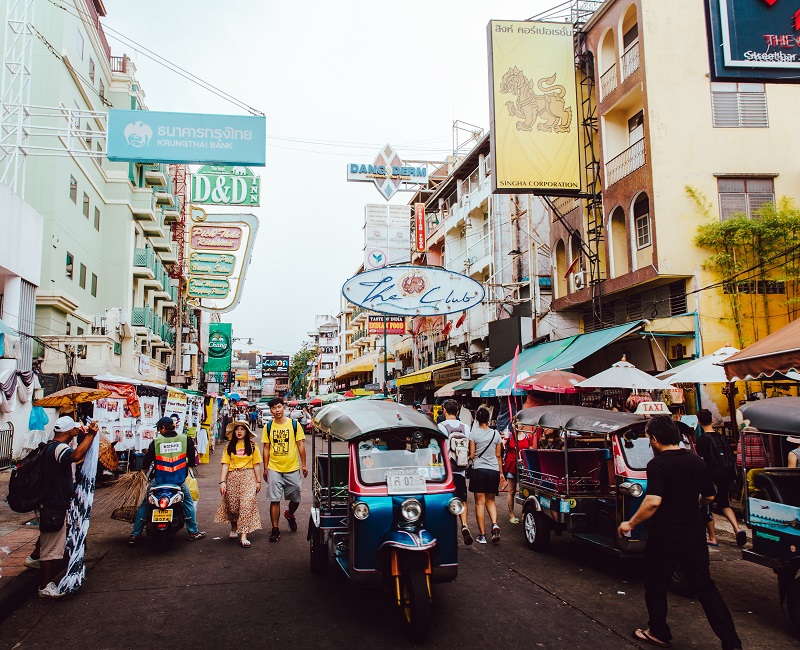
How do I get vaccinations for Thailand?
Anyone requiring injections for Thailand should visit their GP six to eight weeks before they leave. They should also check for any medical updates on the official government website .
Many travel vaccinations are free on the NHS , including those for tetanus, diphtheria, polio, typhoid, hepatitis A and cholera so be sure to take advantage of this and get your free travel jabs.
High street chains like Boots and Superdrug also offer vaccination services but the costs can vary greatly. The International Society of Travel Medicine has clinics in 90 countries and provides pre-travel immunisation and counseling.
It’s important to be aware that not having the required inoculations could invalidate a travel insurance policy
Stay #TravelAware
Thailand is one of the UK's favourite travel destinations but which of these items can you not take into the country?
Did you correctly guess which item isn't allowed into Thailand?
Want to learn about more local laws for any country across the world? Visit www.gov.uk/foreign-travel-advice to stay in the loop with travel advice.
Interested in travel insurance?
Other travel products.
Order foreign currency online or in selected branches. Pick up in any branch or get it delivered to your home.
One prepaid Mastercard™ that stores up to 22 currencies.
Get your passport application right the first time. We can even complete and submit it for you digitally.
This might interest you

The opportunities to combine business and leisure have never been greater. You ...

Learn about the different types of travel insurance available from Post Office, ...

Exploring the globe can be scary, but there’s so much to find at the edge of ...
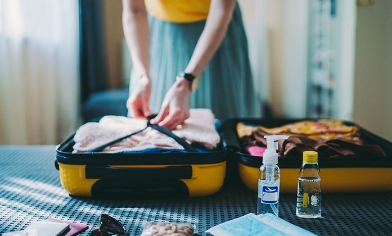
So, you’ve booked your flights, accommodation and activities. What next?
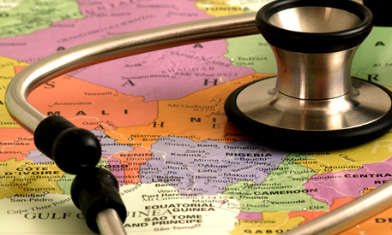
There’s no better feeling than planning an amazing trip to an exotic ...

If you're travelling to an EU country from the UK, make sure you take a Global ...
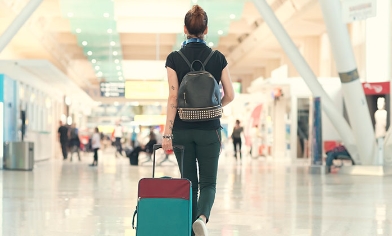
Do you need travel insurance for your trip? Is travel insurance worth it? And, ...

It's a proud feeling when children turn eighteen and start holidaying on their ...

If you're travelling abroad as a family, it makes sense to take out insurance ...

Fancy trekking in a remote Asian rainforest? A wild time in New York? Flying ...

You should be able to get the right cover to travel abroad if you’re diabetic, ...

Adventurous holidays can take many forms, from action-packed itineraries in ...
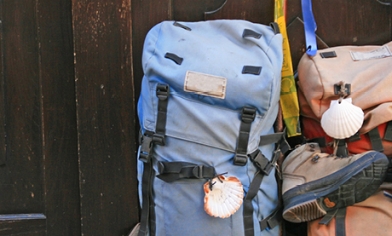
Going backpacking is one of life’s great adventures. But before you set off ...

If you're living with cancer but love to travel, can you get travel insurance ...
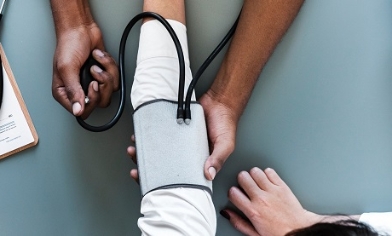
Travelling with high blood pressure is fine – but it’s important to make sure ...
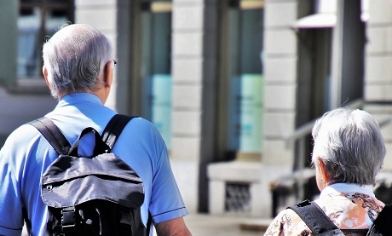
As you get older, being able to go where you want when you want is all part of ...

Travel insurance for a holiday in the UK isn't something you must have, but it ...

With festivals overseas becoming the new norm, festivalgoers need to do a bit ...
- Skip to main content
- Skip to header right navigation
- Skip to after header navigation
- Skip to site footer
Thailand Travel ADVICE

Thailand news, tips & advice
Inoculations: What Jabs do I Need to Travel to Thailand?
There are no compulsory inoculation requirements* for visitors to Thailand coming from the West. While not compulsory, I would recommend vaccinations for:
- Hepatitis A (and possibly Hepatitis B)
- Polio and Tetanus
* Please see the separate advice on Covid-19 and entry requirements here : https://www.thaizer.com/thailand-entry-rules/
For many people it may just be a case of checking to see if you need a booster jab. Check with your doctor or health care practitioner before you go. Some health care professionals may suggest malaria tablets and rabies inoculation. Naturally, the choice is yours, but if you are visiting the main tourist areas malaria is not an issue. If you’re planning on doing some serious jungle trekking it may be a consideration, but even then a course of tablets will be far cheaper in Thailand. The local pharmacies are invariably excellent with English speaking staff. The British pharmacy group, Boots the Chemist, has branches in places like Bangkok, Ko Samui, Chiang Mai and Pattaya.
Should you have the misfortune to be bitten by a dog or monkey, rabies vaccinations can be administered at the nearest hospital. The cost is cheap and the service good. Most tourists and visitors to Thailand won’t need to be vaccinated for Japanese encephalitis , but it may be a consideration for some people. Your doctor, local surgery or medical practitioner will be able to advise you.
Book your Thailand transport
Find thailand hotels.
- Central Thailand
- East Thailand
- North Thailand
- North-East Thailand (Isaan)
- South Thailand
About Roy Cavanagh
Roy Cavanagh is a freelance writer and website publisher . Passionate about Thailand and Thai culture, Roy is also the editor of the online magazine, Fan Club Thailand .
Facebook | Instagram | Twitter | YouTube
Travel vaccination advice
If you're planning to travel outside the UK, you may need to be vaccinated against some of the serious diseases found in other parts of the world.
Vaccinations are available to protect you against infections such as yellow fever , typhoid and hepatitis A .
In the UK, the NHS routine immunisation (vaccination) schedule protects you against a number of diseases, but does not cover all of the infectious diseases found overseas.
When should I start thinking about the vaccines I need?
If possible, see the GP or a private travel clinic at least 6 to 8 weeks before you're due to travel.
Some vaccines need to be given well in advance to allow your body to develop immunity.
And some vaccines involve a number of doses spread over several weeks or months.
You may be more at risk of some diseases, for example, if you're:
- travelling in rural areas
- backpacking
- staying in hostels or camping
- on a long trip rather than a package holiday
If you have a pre-existing health problem, this may make you more at risk of infection or complications from a travel-related illness.
Which travel vaccines do I need?
You can find out which vaccinations are necessary or recommended for the areas you'll be visiting on these websites:
- Travel Health Pro
- NHS Fit for Travel
Some countries require proof of vaccination (for example, for polio or yellow fever vaccination), which must be documented on an International Certificate of Vaccination or Prophylaxis (ICVP) before you enter or when you leave a country.
Saudi Arabia requires proof of vaccination against certain types of meningitis for visitors arriving for the Hajj and Umrah pilgrimages.
Even if an ICVP is not required, it's still a good idea to take a record of the vaccinations you have had with you.
Find out more about the vaccines available for travellers abroad
Where do I get my travel vaccines?
First, phone or visit the GP practice or practice nurse to find out whether your existing UK vaccinations are up-to-date.
If you have any records of your vaccinations, let the GP know what you have had previously.
The GP or practice nurse may be able to give you general advice about travel vaccinations and travel health, such as protecting yourself from malaria.
They can give you any missing doses of your UK vaccines if you need them.
Not all travel vaccinations are available free on the NHS, even if they're recommended for travel to a certain area.
If the GP practice can give you the travel vaccines you need but they are not available on the NHS, ask for:
- written information on what vaccines are needed
- the cost of each dose or course
- any other charges you may have to pay, such as for some certificates of vaccination
You can also get travel vaccines from:
- private travel vaccination clinics
- pharmacies offering travel healthcare services
Which travel vaccines are free?
The following travel vaccines are available free on the NHS from your GP surgery:
- polio (given as a combined diphtheria/tetanus/polio jab )
- hepatitis A
These vaccines are free because they protect against diseases thought to represent the greatest risk to public health if they were brought into the country.
Which travel vaccines will I have to pay for?
You'll have to pay for travel vaccinations against:
- hepatitis B
- Japanese encephalitis
- tick-borne encephalitis
- tuberculosis (TB)
- yellow fever
Yellow fever vaccines are only available from designated centres .
The cost of travel vaccines that are not available on the NHS will vary, depending on the vaccine and number of doses you need.
It's worth considering this when budgeting for your trip.
Other things to consider
There are other things to consider when planning your travel vaccinations, including:
- your age and health – you may be more vulnerable to infection than others; some vaccines cannot be given to people with certain medical conditions
- working as an aid worker – you may come into contact with more diseases in a refugee camp or helping after a natural disaster
- working in a medical setting – a doctor, nurse or another healthcare worker may require additional vaccinations
- contact with animals – you may be more at risk of getting diseases spread by animals, such as rabies
If you're only travelling to countries in northern and central Europe, North America or Australia, you're unlikely to need any vaccinations.
But it's important to check that you're up-to-date with routine vaccinations available on the NHS.
Pregnancy and breastfeeding
Speak to a GP before having any vaccinations if:
- you're pregnant
- you think you might be pregnant
- you're breastfeeding
In many cases, it's unlikely a vaccine given while you're pregnant or breastfeeding will cause problems for the baby.
But the GP will be able to give you further advice about this.
People with immune deficiencies
For some people travelling overseas, vaccination against certain diseases may not be advised.
This may be the case if:
- you have a condition that affects your body's immune system, such as HIV or AIDS
- you're receiving treatment that affects your immune system, such as chemotherapy
- you have recently had a bone marrow or organ transplant
A GP can give you further advice about this.
Non-travel vaccines
As well as getting any travel vaccinations you need, it's also a good opportunity to make sure your other vaccinations are up-to-date and have booster vaccines if necessary.
Although many routine NHS vaccinations are given during childhood, you can have some of them (such as the MMR vaccine ) as an adult if you missed getting vaccinated as a child.
There are also some extra NHS vaccinations for people at higher risk of certain illnesses, such as the flu vaccine , the hepatitis B vaccine and the BCG vaccine for tuberculosis (TB) .
Your GP can advise you about any NHS vaccinations you might need.
Find out about NHS vaccinations and when to have them
Page last reviewed: 16 March 2023 Next review due: 16 March 2026

IMAGES
VIDEO
COMMENTS
Vaccinations and health risks. At least 8 weeks before your trip check: Health risks in Thailand include: See the 'Other risks' section of the TravelHealthPro Thailand guide for more on health ...
A combined hepatitis A and hepatitis B jab is also available if you're likely to be at risk of both these conditions while travelling. 4. Rabies. The preventative rabies vaccine is not completely necessary if a traveler is exclusively visiting the major cities in Thailand.
Specific. Advice. Travelers'. Diarrhea Kits. Available. Thailand is a popular destination with its tropical climate, food, culture and beaches. Thai is the official language of Thailand. But, other smaller languages spoken in rural areas. The primary religion of Thailand is Buddhism and is prevalent in many aspects of culture throughout Thailand.
Recommended for extended travel, recurrent travellers and travel to rural areas. Present throughout country, especially northern regions. ... If you have any questions about travelling to Thailand or are wondering which jabs you may need for your trip, schedule an appointment with your local Passport Health travel medicine clinic.
International travellers, including returning Thais and foreign residents, who are above 18 years of age should get fully vaccinated for Covid-19 with a vaccine approved by Thailand's Ministry of Public Health (MoPH) or the World Health Organisation (WHO) no less than 14 days before their travel date. Travellers 12-17 years of age, travelling ...
For more information: https://www.tatnews.org. Thailand currently approves 13 COVID-19 vaccines, and everyone 18 years of age and older should get fully vaccinated for COVID-19 before travelling to the Kingdom, while rules differ for those under 18 years. Here's an update to our guide to COVID-19 vaccines for international travellers to Thailand.
Advice for All Destinations COVID-19. Read the information on the COVID-19: Health Considerations for Travel page for advice on travelling during the COVID-19 pandemic.. Vaccinations and malaria risk. Review both the Vaccination and Malaria sections on this page to find out if you may need vaccines and/or a malaria risk assessment before you travel to this country.
The aviation regulator has formally notified all parties about the change to arrival rules for international travellers aged 18 and over. They will take effect for flights landing in Thailand from ...
Guidelines to be considered as fully vaccinated when having been infected with Covid-19…. 1. CoronaVac (Sinovac) - 2 doses needed / 2nd dose after 2-4 weeks. 2. AstraZeneca (Vaxzevria, Covishield) - 2 doses needed /2nd dose after 4-12 weeks; 3. Pfizer-BioNTech (Comirnaty, Tozinameran (INN)) - 2 doses needed / 2nd dose after 3 week;
At a time when Thailand is faced with a tough battle against COVID-19 and new variants, it's more important than ever for health authorities to relay important messages to the Thai and non-Thai population - especially with the two million workers from neighbouring countries including Cambodia, Laos, and Myanmar. Health literacy plays a crucial role in helping to reduce transmission and ...
If your travel plans in Thailand include outdoor activities, take these steps to stay safe and healthy during your trip. Stay alert to changing weather conditions and adjust your plans if conditions become unsafe. Prepare for activities by wearing the right clothes and packing protective items, such as bug spray, sunscreen, and a basic first ...
Thailand has clarified its COVID-19 entry rules after confusion about whether vaccinations are needed to enter the country. On Saturday, aviation authorities announced that proof of vaccination ...
The COVID-19 pandemic wreaked havoc on the world. International travel ground to a halt and countries were forced to implement strict processes and entry requirements to halt the spread of the virus. Thailand introduced quarantine measures and Thailand Pass. Thailand Pass required visitors to register details like vaccination status, flight, and hotel bookings, and confirmation
After months of strict travel restrictions due to the COVID-19 pandemic, Thailand is gearing up for a return to normalcy by easing some travel restrictions and quarantine requirements and allowing normal tourists to enter the country. Vaccinated travelers are allowed to travel to Thailand without quarantine under the Phuket Sandbox and the Samui Plus Sandbox programs.
Malaria Precautions. Thailand is a malaria region. Malaria primarily affects forested areas near the borders but it also affects Surat Thani province and parts of the southern border with Malaysia.The risk in most cities is classed as low to no risk.The nurse or pharmacist will assess whether you need malaria tablets based on your travel ...
Visa requirements. British passport holders arriving by air or land can enter Thailand for 30 days without a visa (visa exemption). If you intend to stay longer (for work, study or other reasons ...
It's recommended that travellers to Thailand have jabs for tetanus and hepatitis A, possibly for yellow fever too, and they should also take additional precautions depending on which regions they're visiting and the activities they plan to do. Tetanus. Contracted through the contamination of cuts, burns and wounds, is a potential issue ...
Inoculations: What Jabs do I Need to Travel to Thailand? There are no compulsory inoculation requirements* for visitors to Thailand coming from the West. While not compulsory, I would recommend vaccinations for: Hepatitis A (and possibly Hepatitis B) Polio and Tetanus. Typhoid. * Please see the separate advice on Covid-19 and entry requirements ...
Travel vaccination advice. If you're planning to travel outside the UK, you may need to be vaccinated against some of the serious diseases found in other parts of the world. Vaccinations are available to protect you against infections such as yellow fever, typhoid and hepatitis A. In the UK, the NHS routine immunisation (vaccination) schedule ...
Find out more information on travel health advice when visiting Thailand. Discover what disease may require vaccinations. ... Winter Flu Jab Service. Travel Vaccinations. Chickenpox Vaccination Service ... MenB Vaccination Service. MenB Vaccination Service; visit menb vaccination service. Malaria Prevention Service. Travel Vaccination Quick ...
Ask the experts: Dr Richard Dawood, a travel health expert, advises a reader on the necessary vaccinations for a Thailand trip.
Where to get injections for Thailand. You can receive your jabs for Thailand through a number of different services. The NHS will usually provide the following travel vaccines for free: Cholera (under certain circumstances) Diphtheria, polio & tetanus. Hepatitis A & typhoid.
However, even if time is short, an appointment is still worthwhile. This appointment provides an opportunity to assess health risks taking into account a number of factors including destination, medical history, and planned activities. For those with pre-existing health problems, an earlier appointment is recommended.